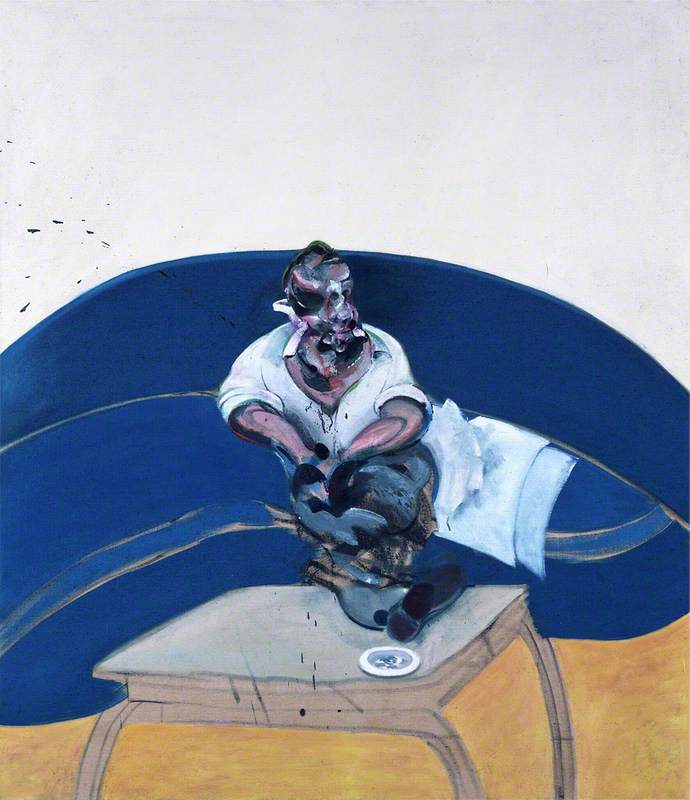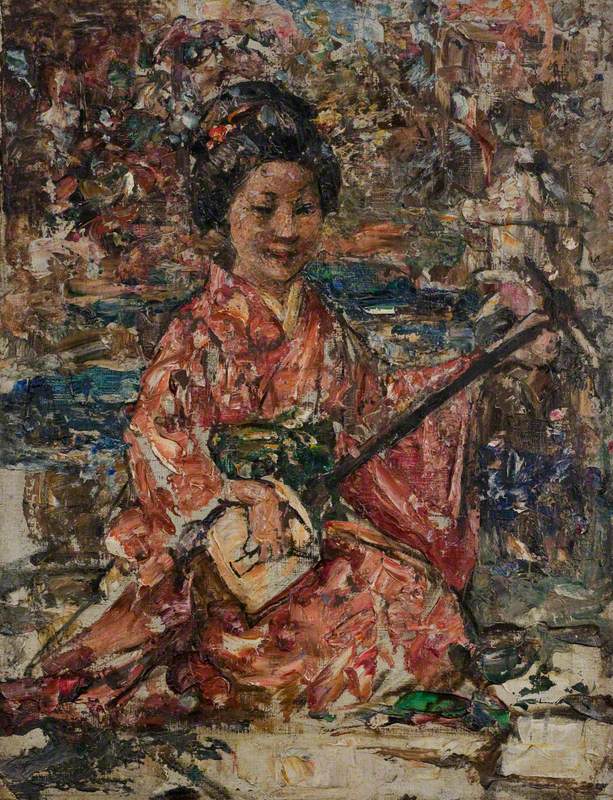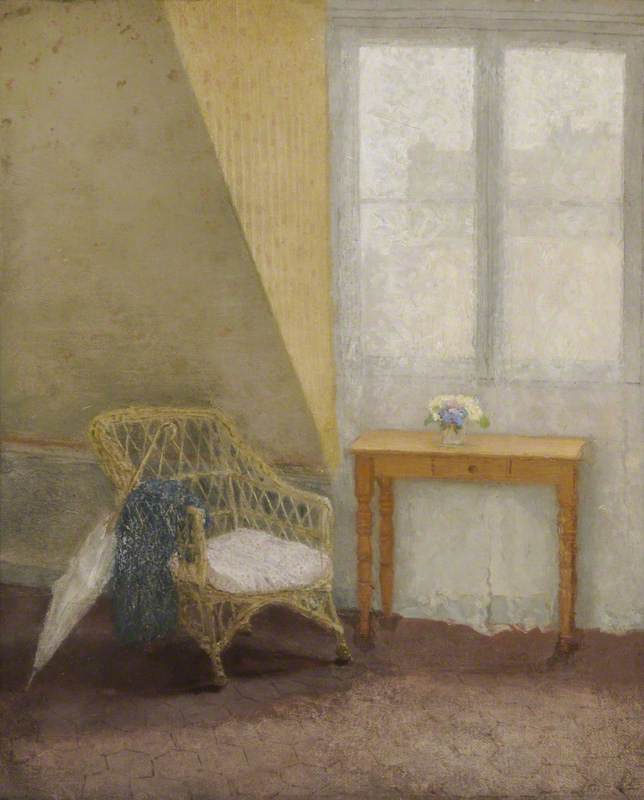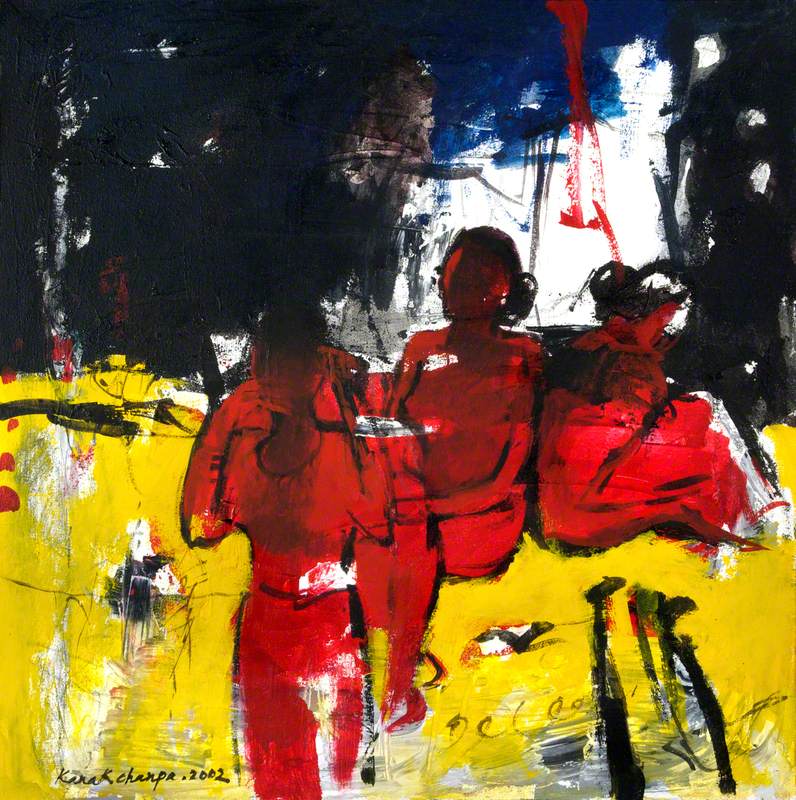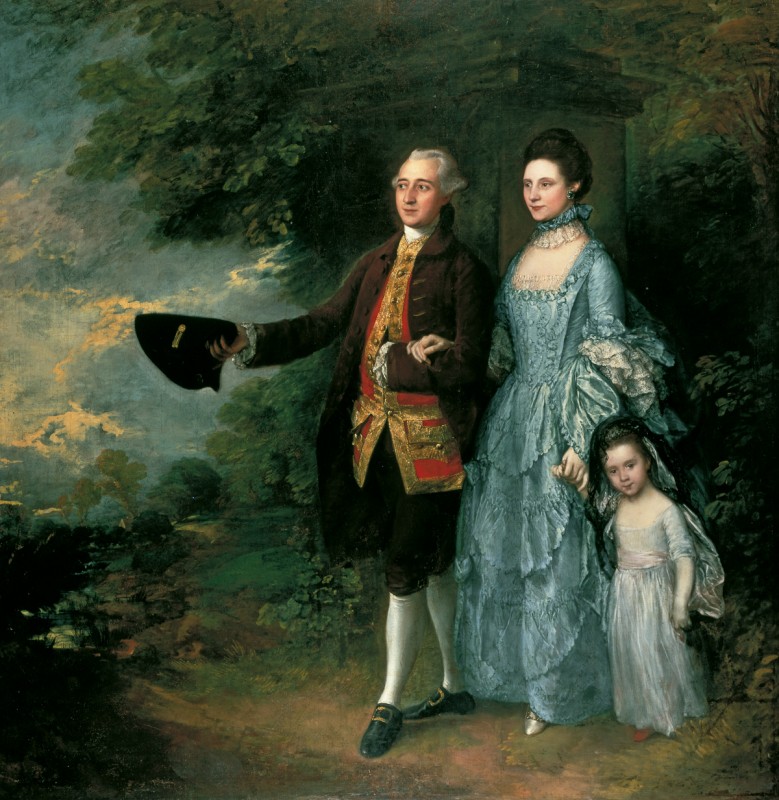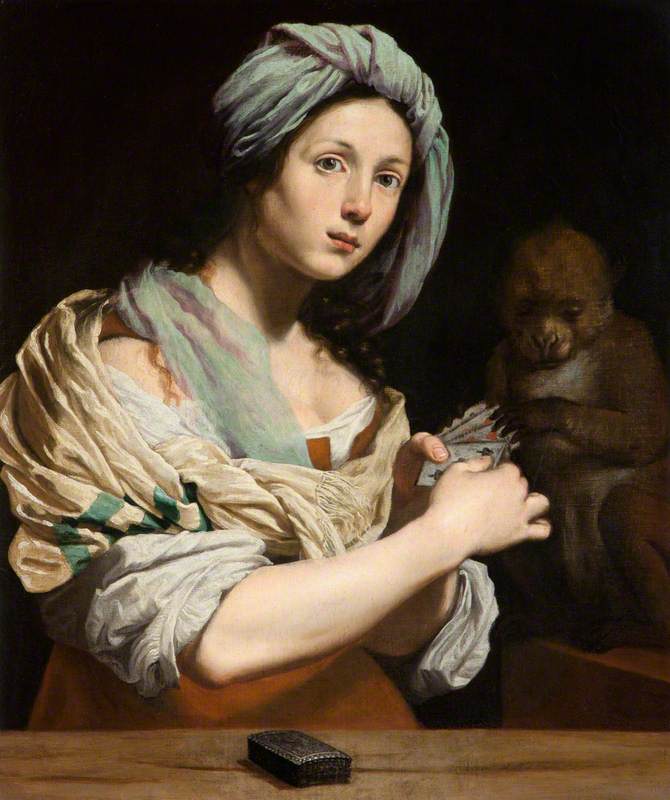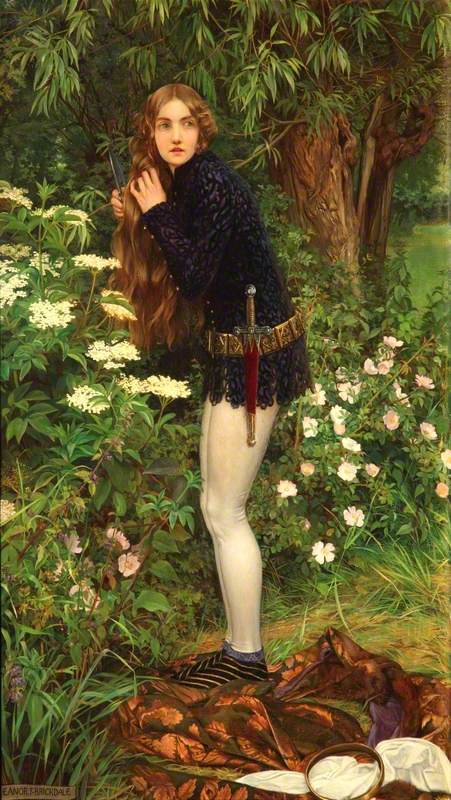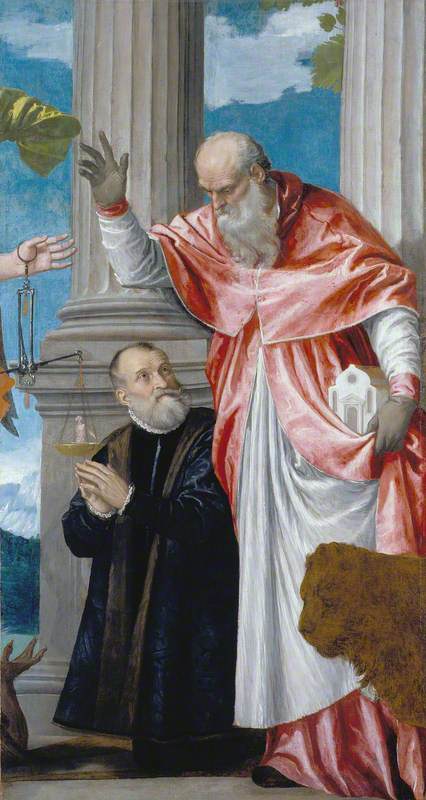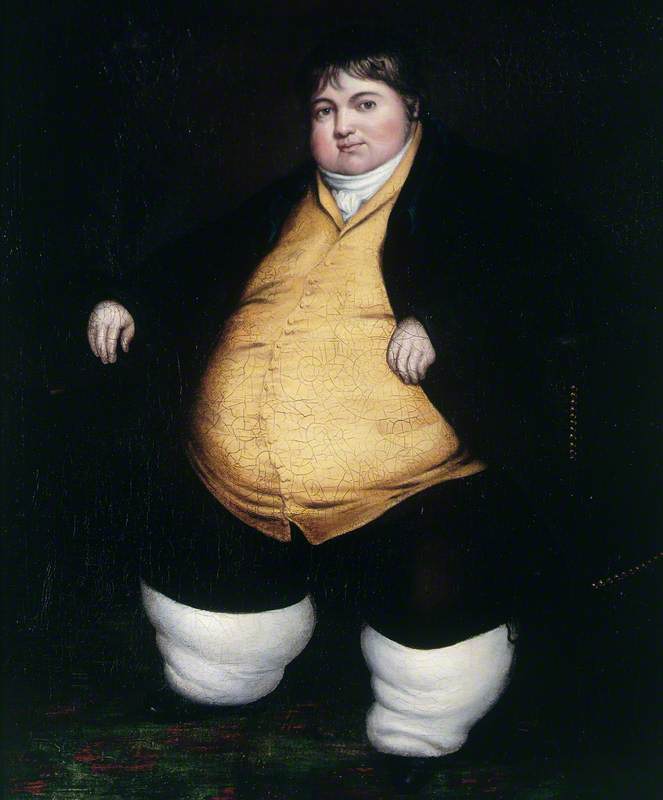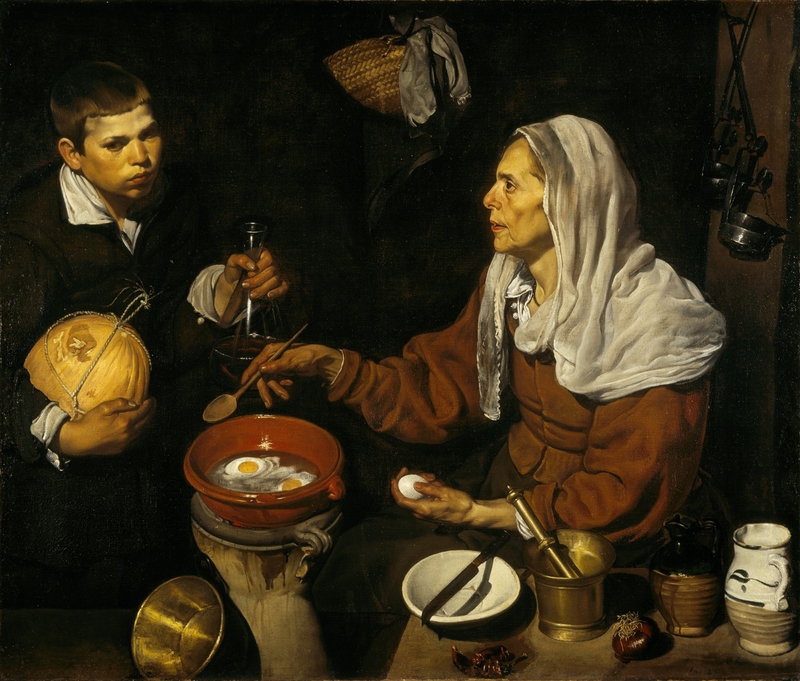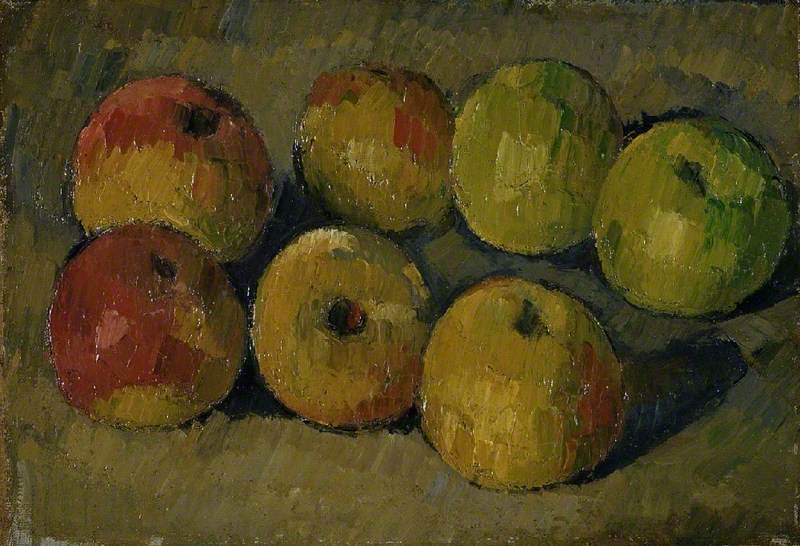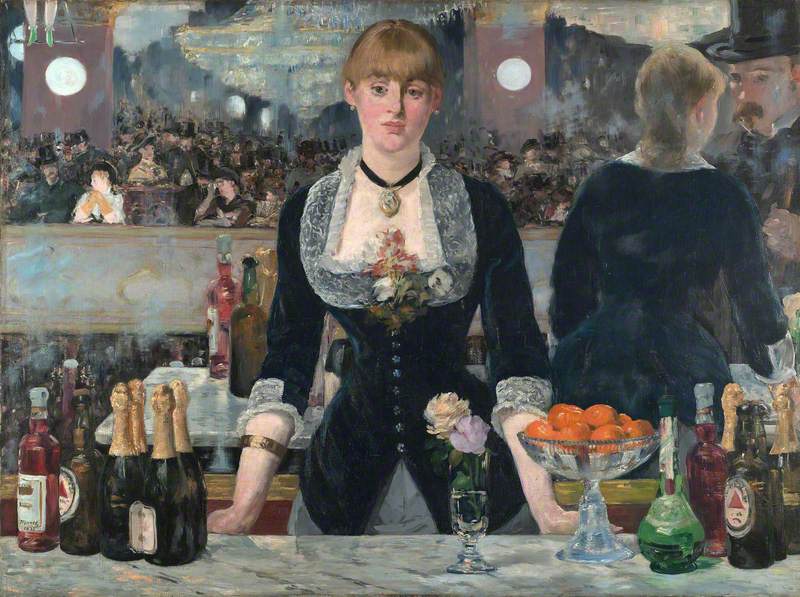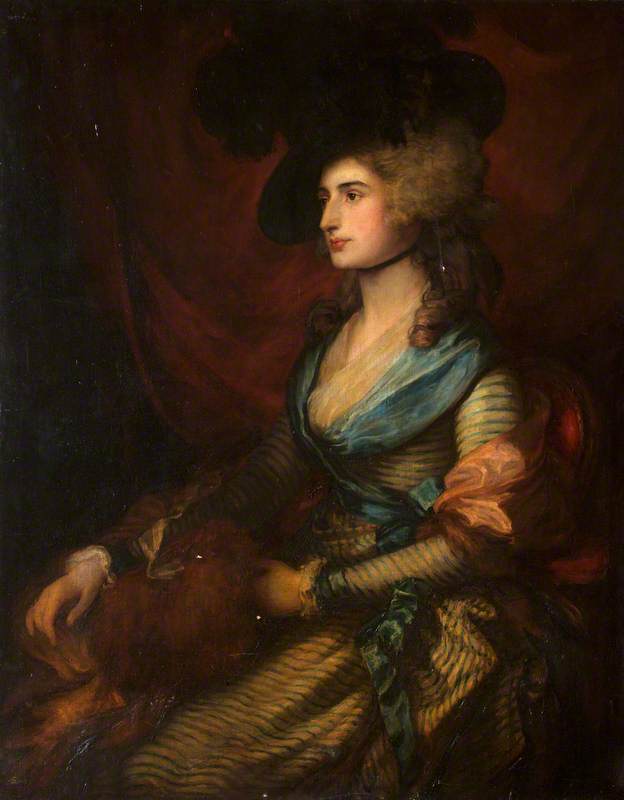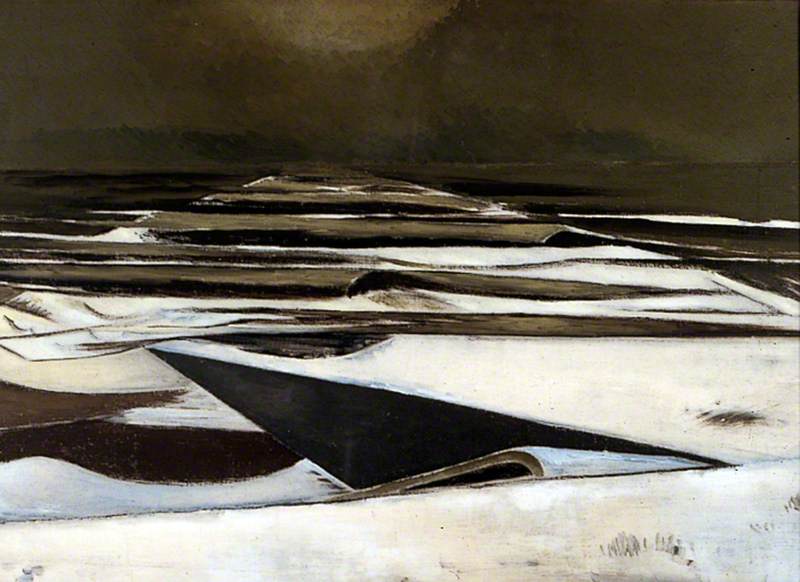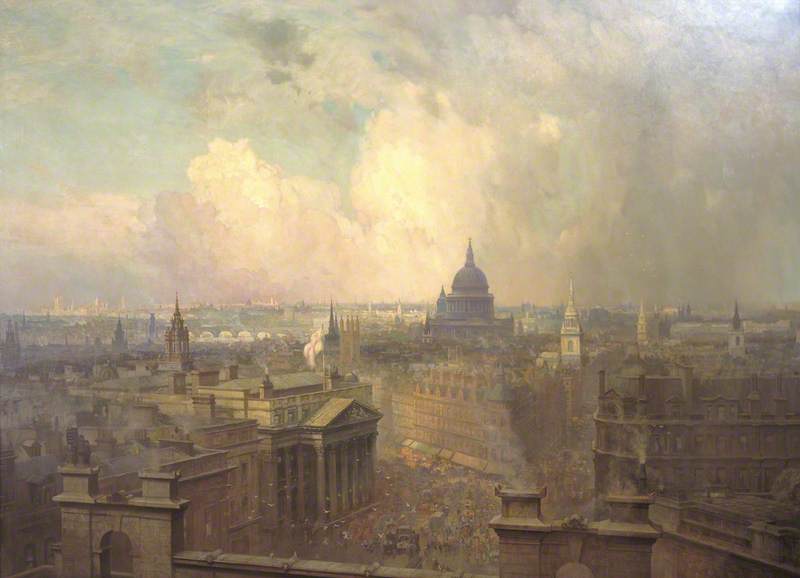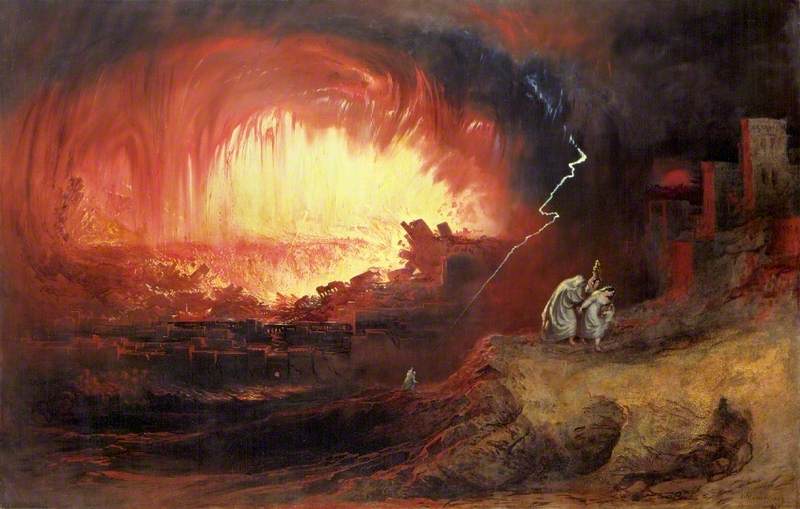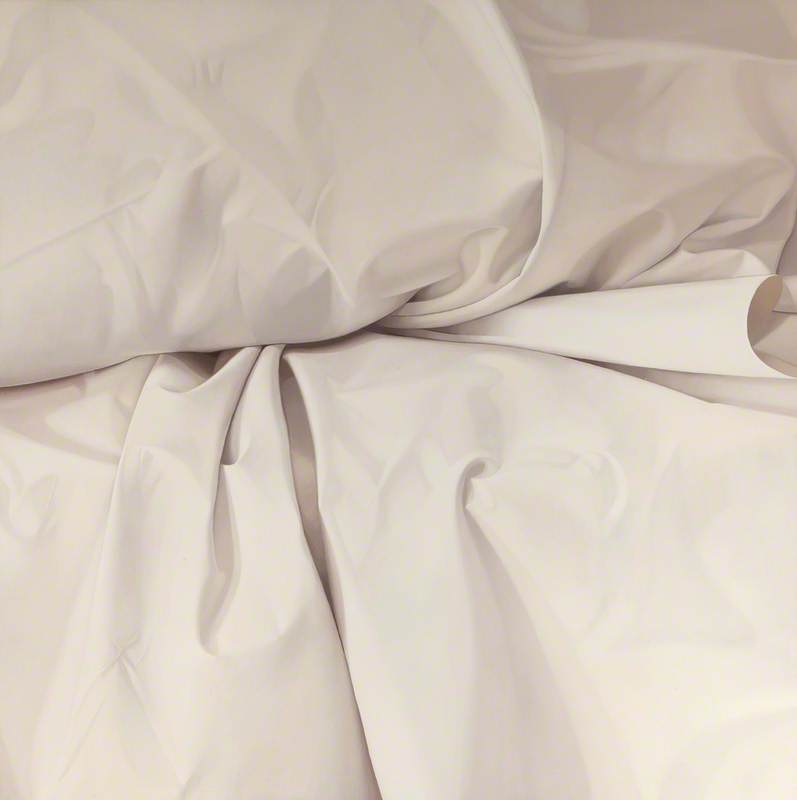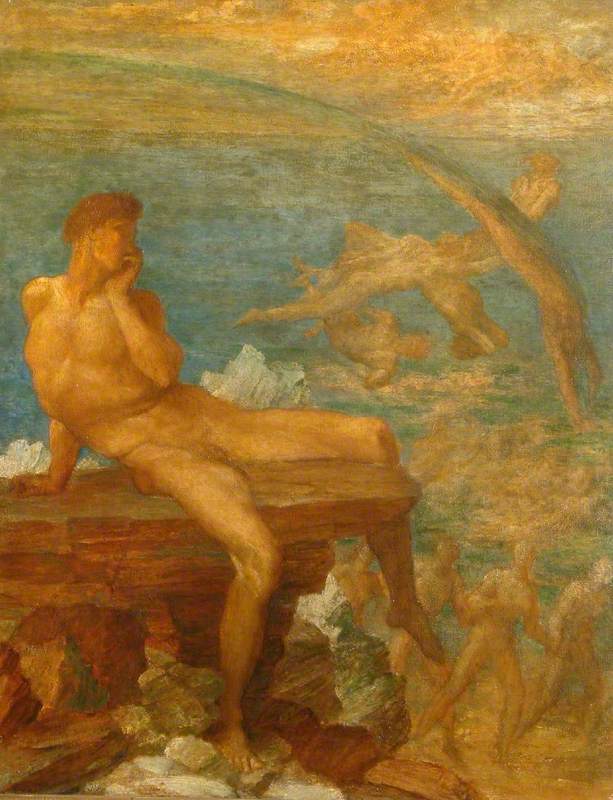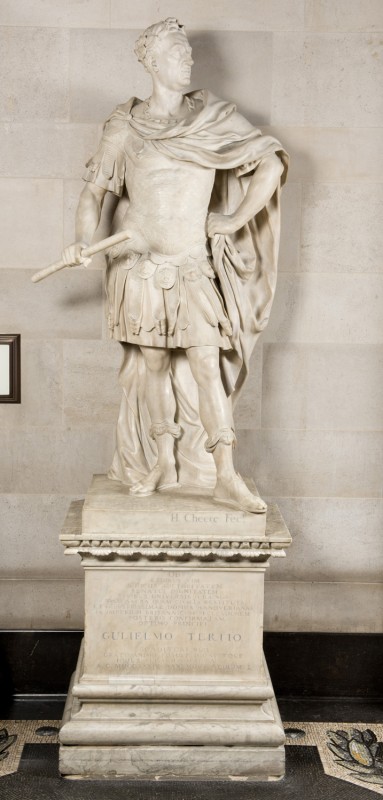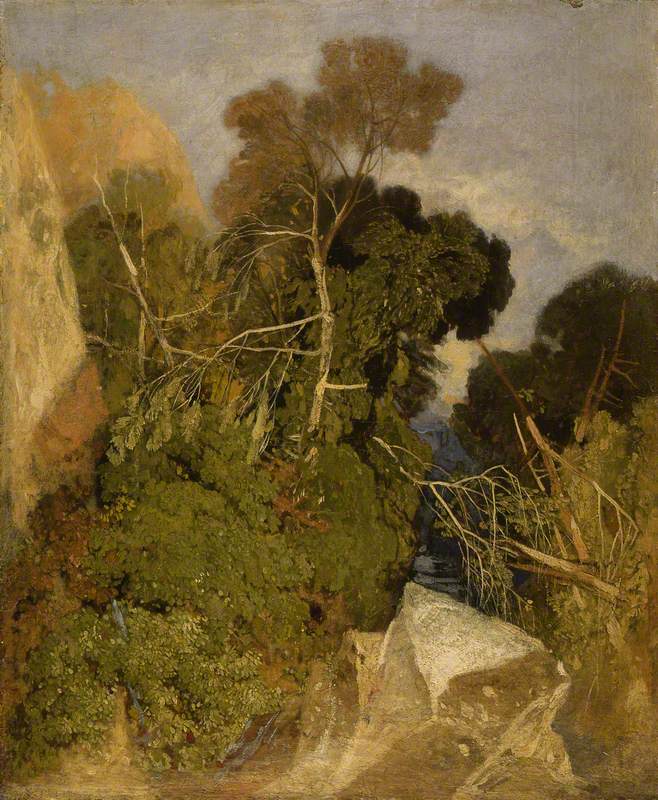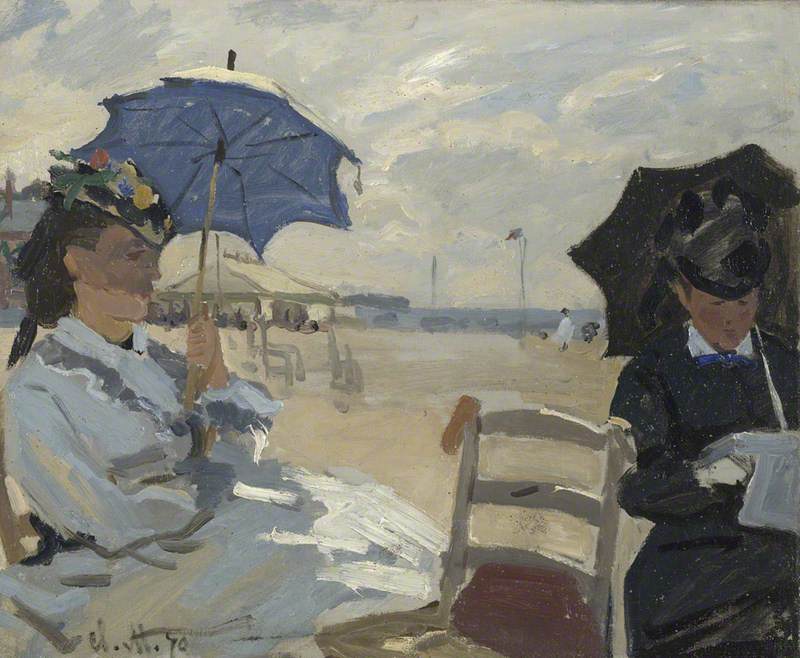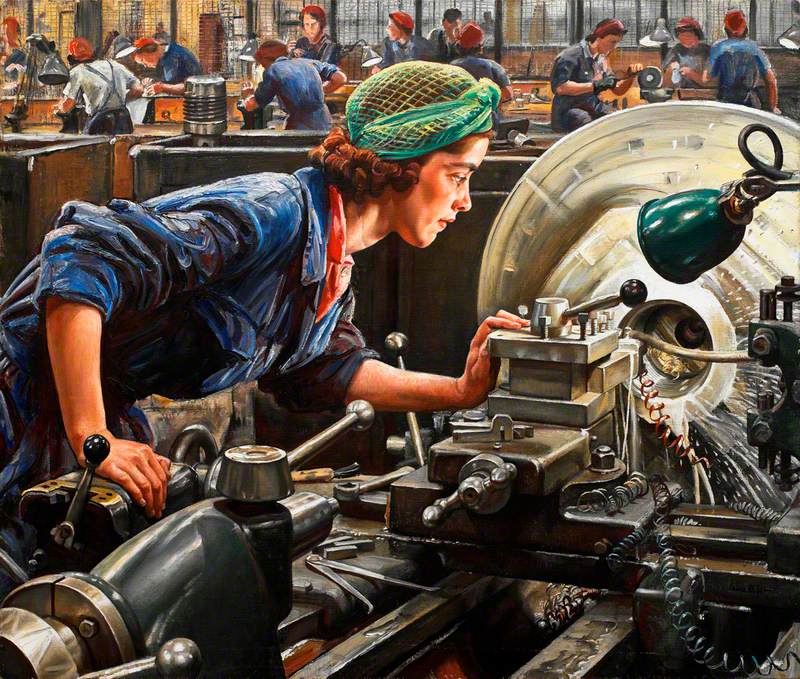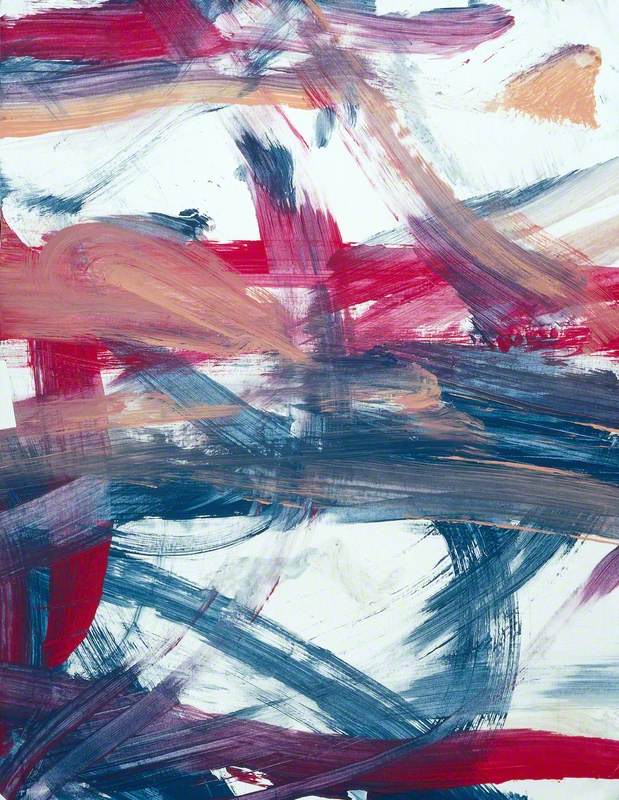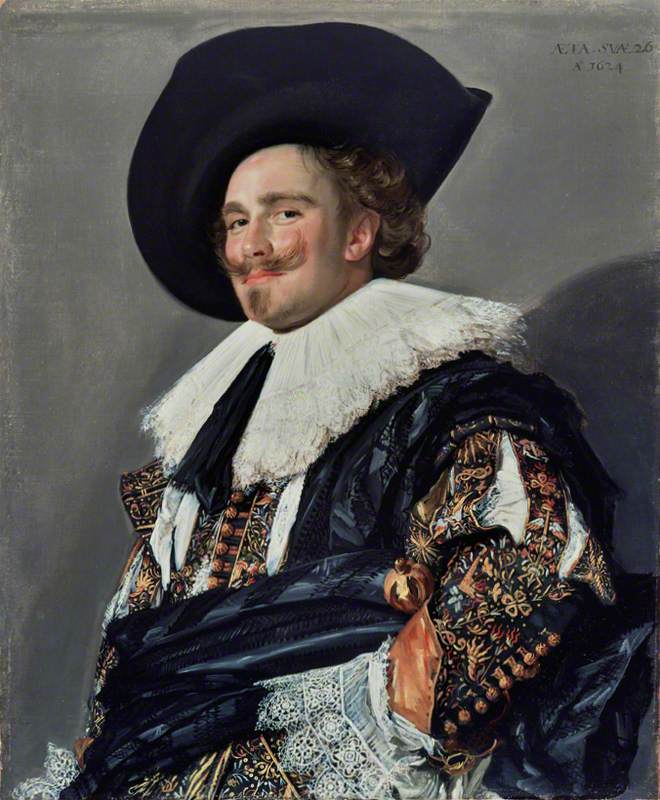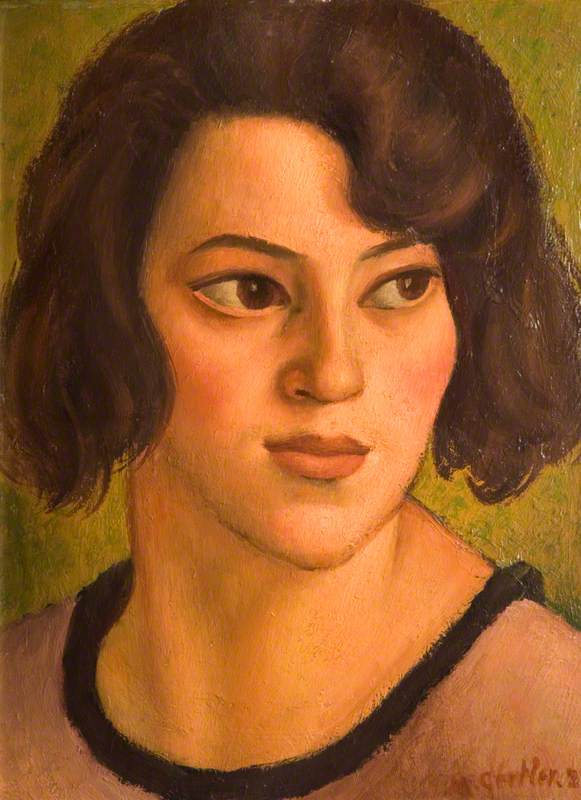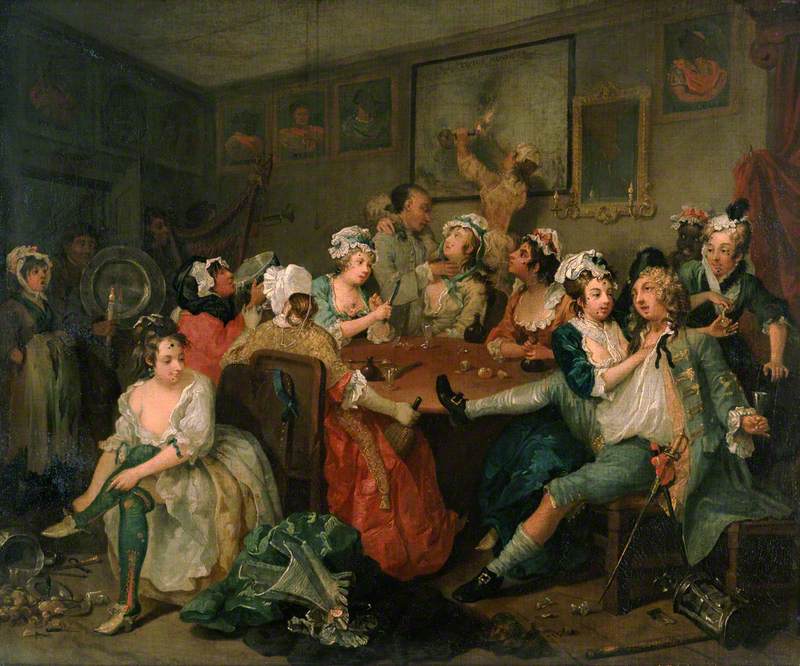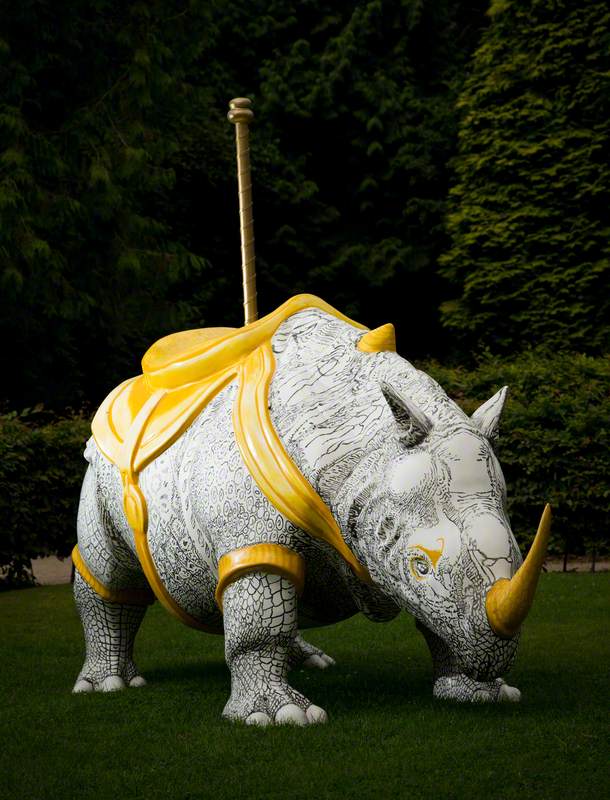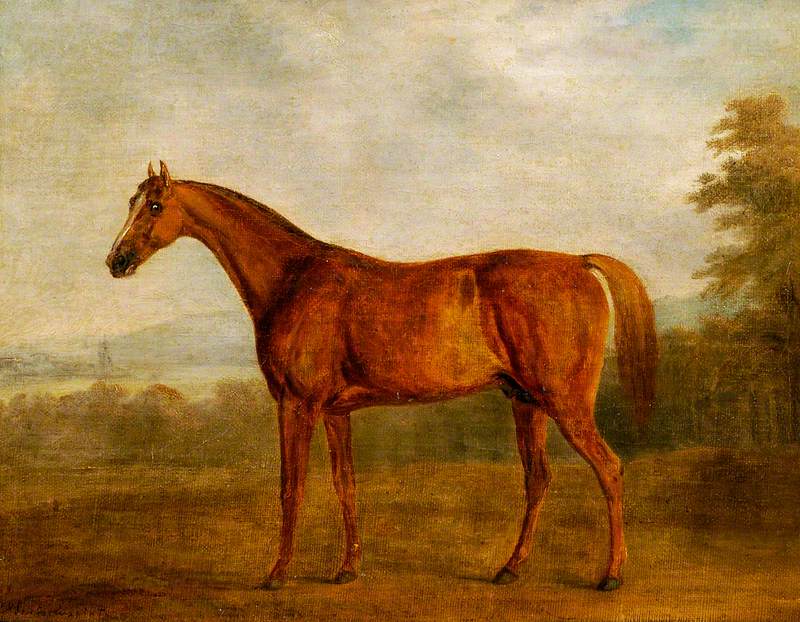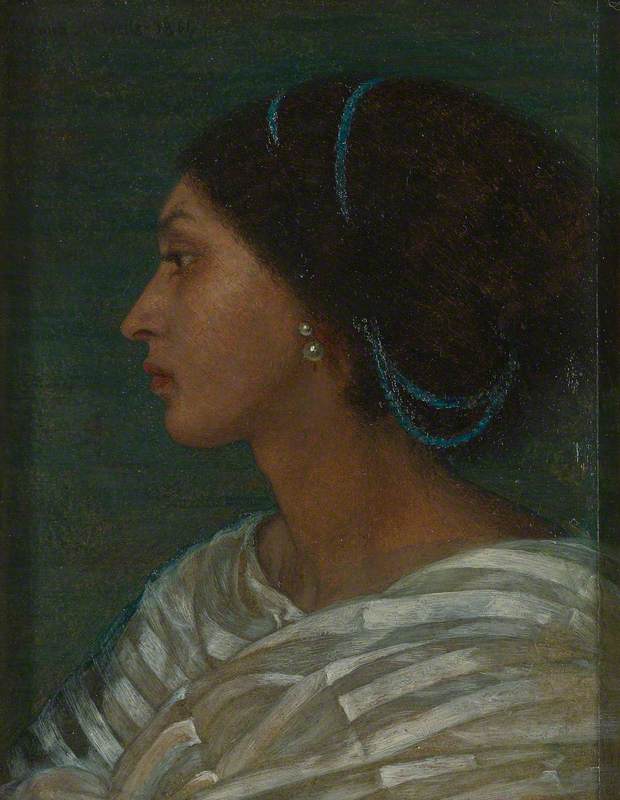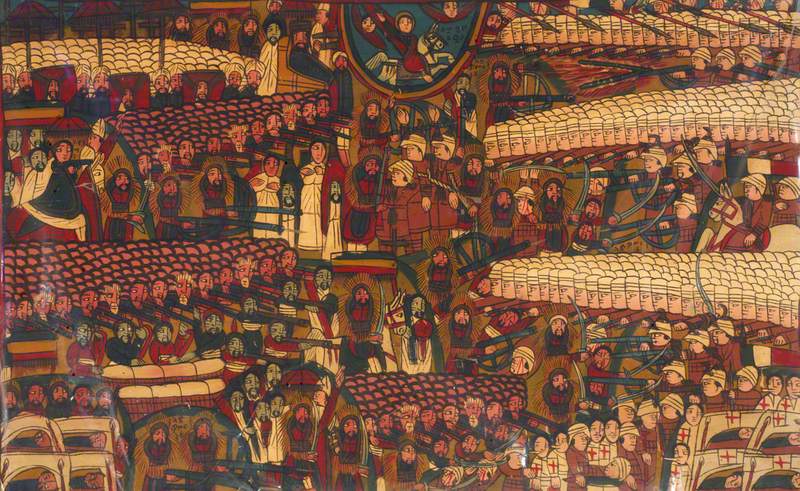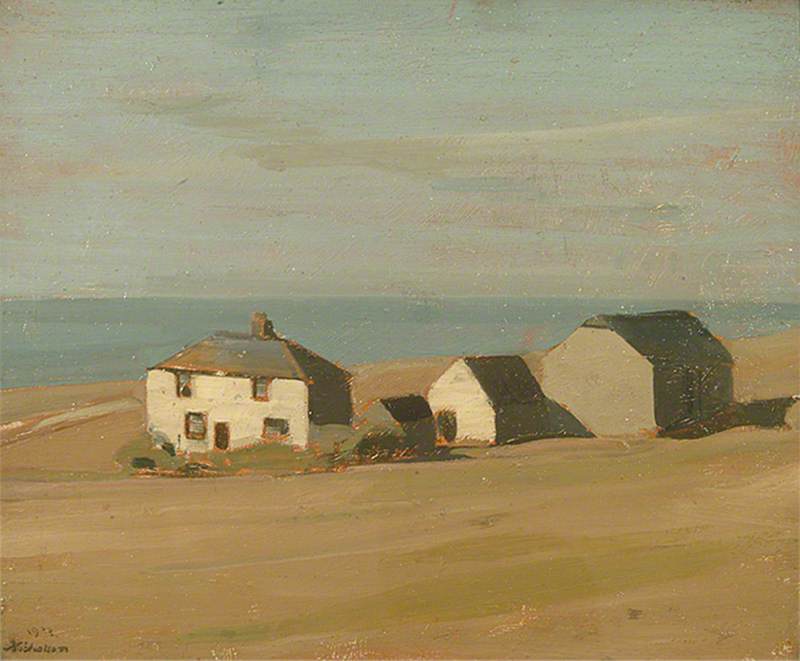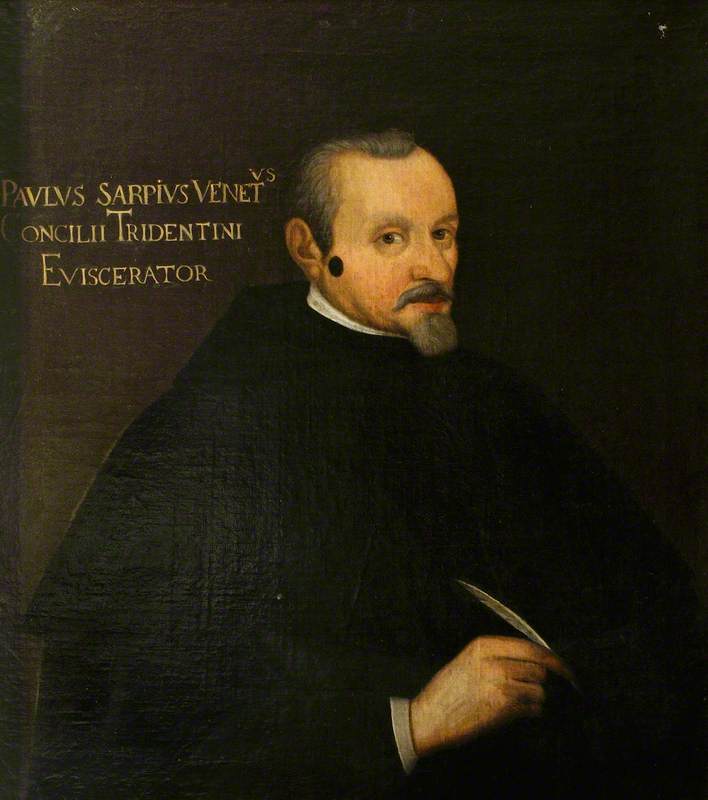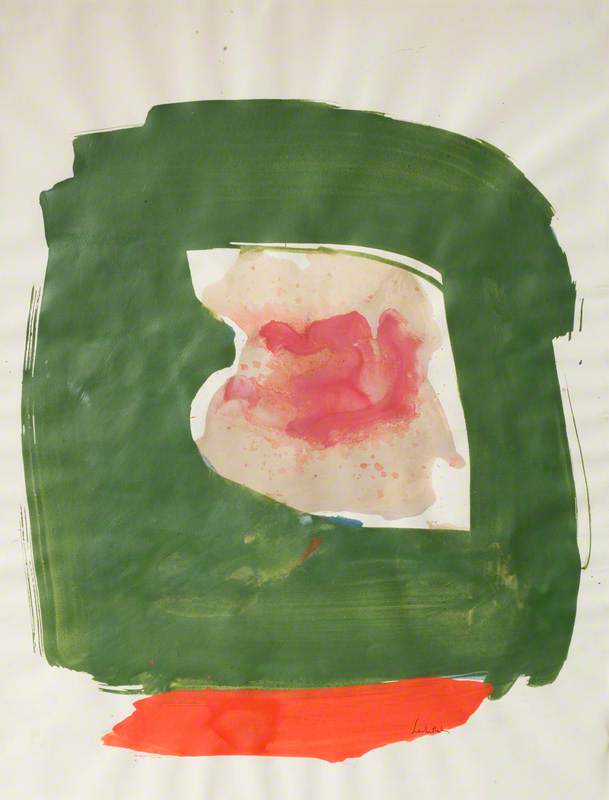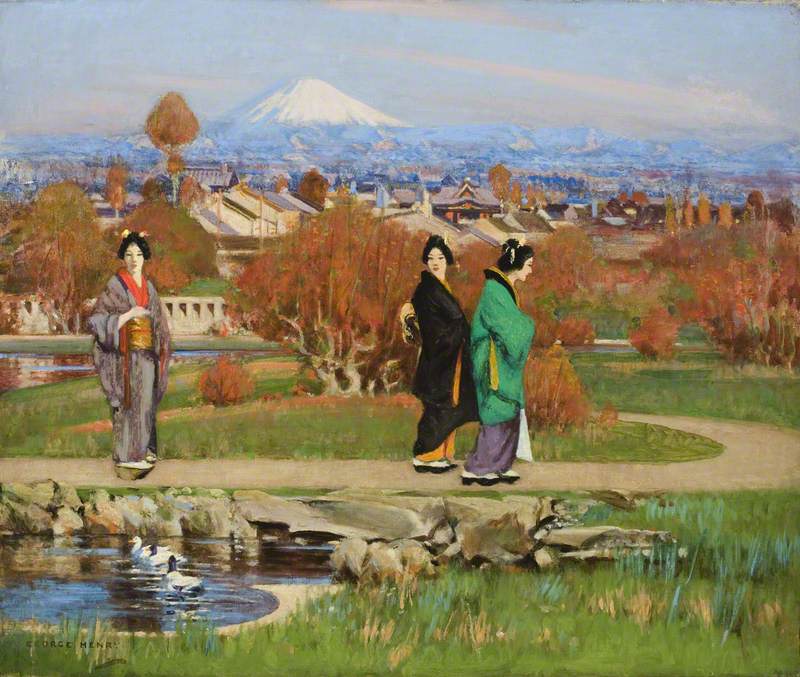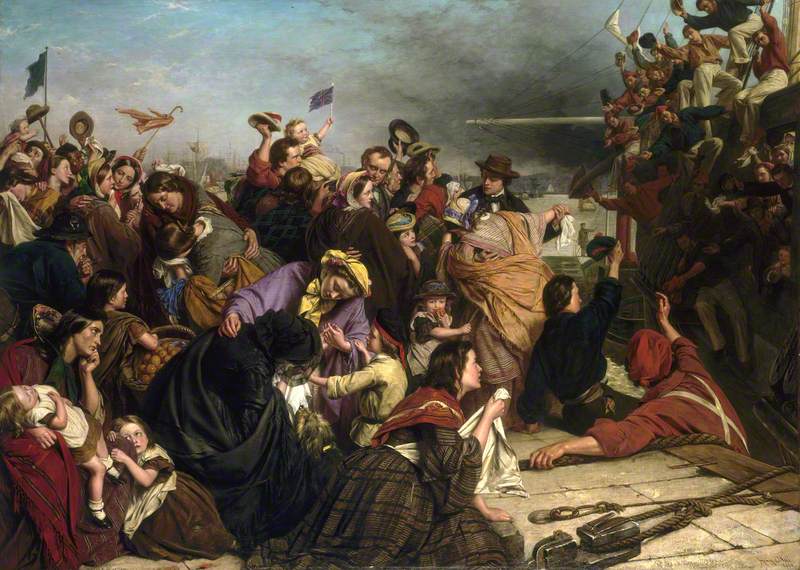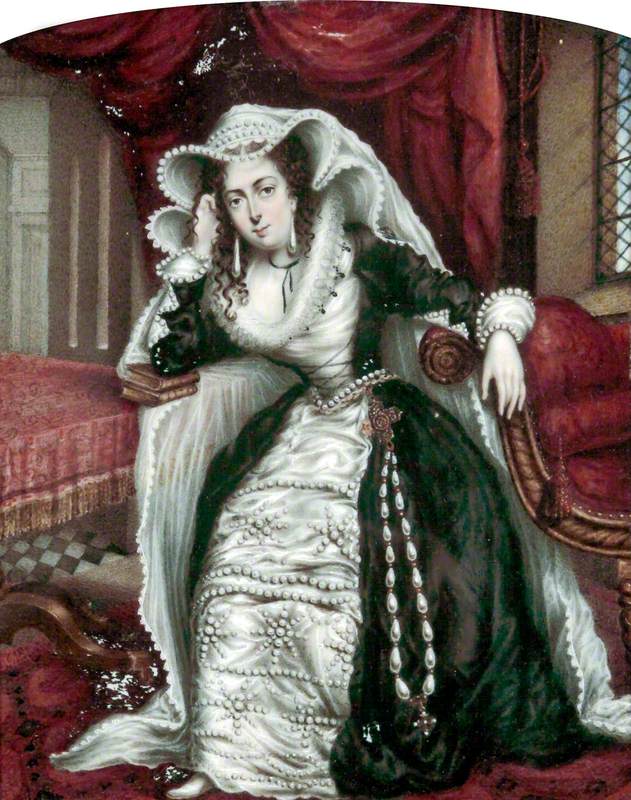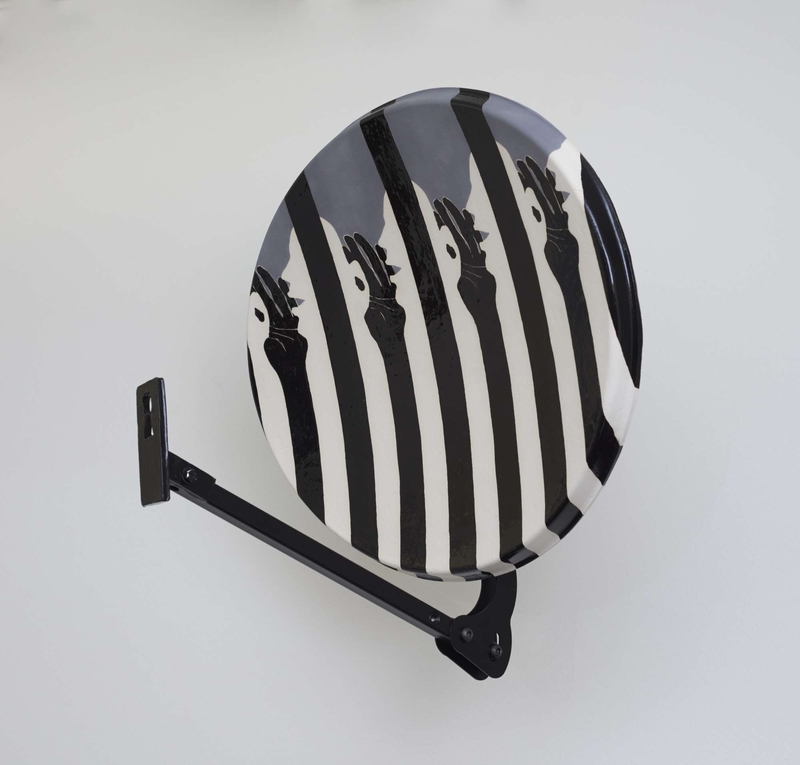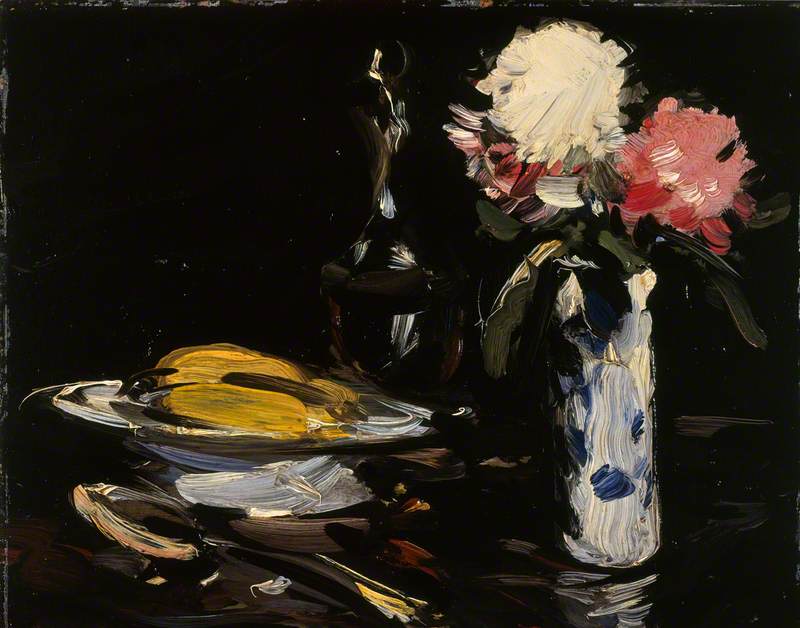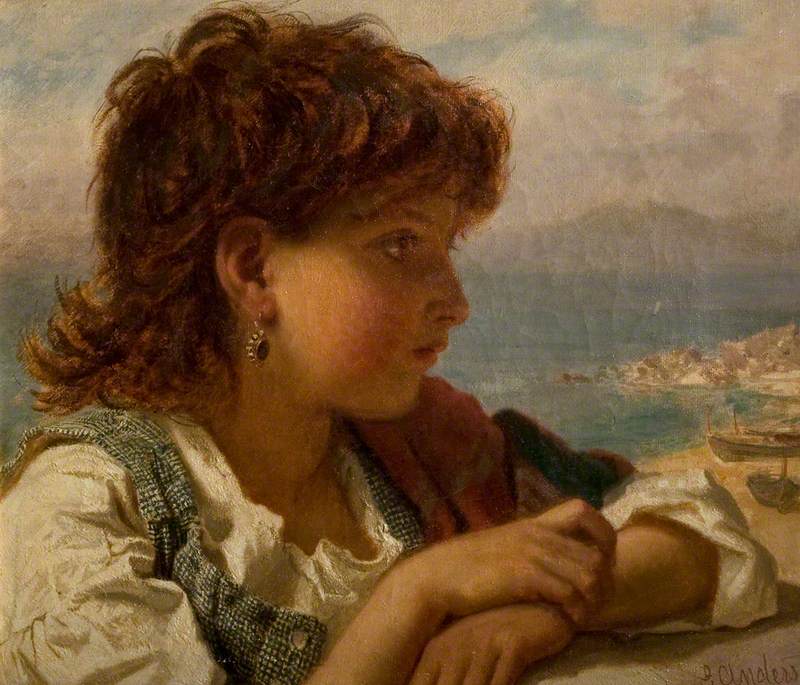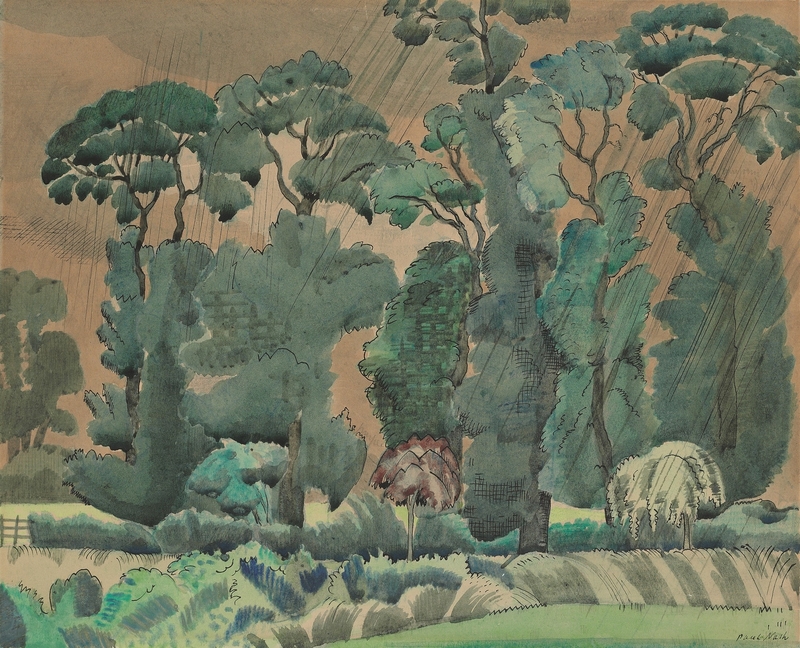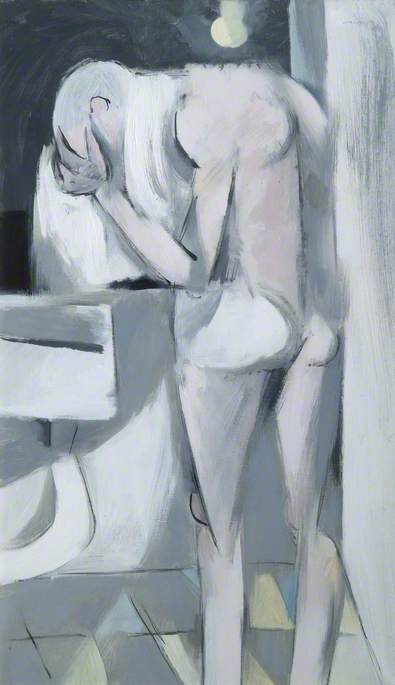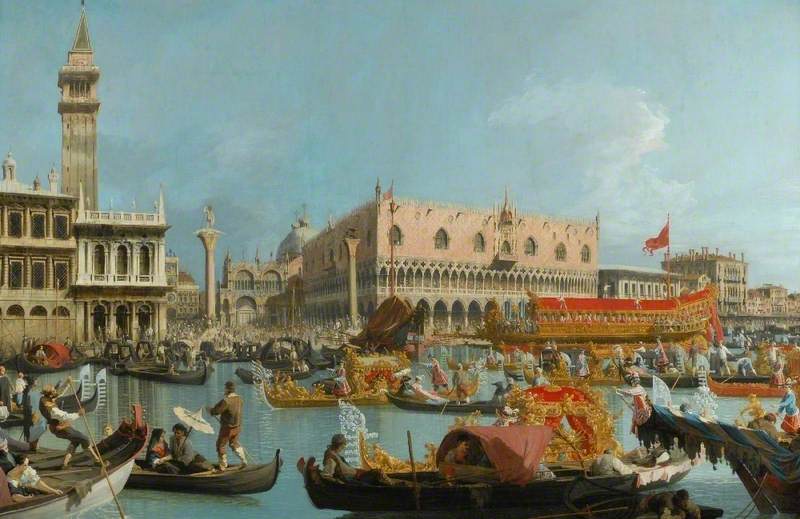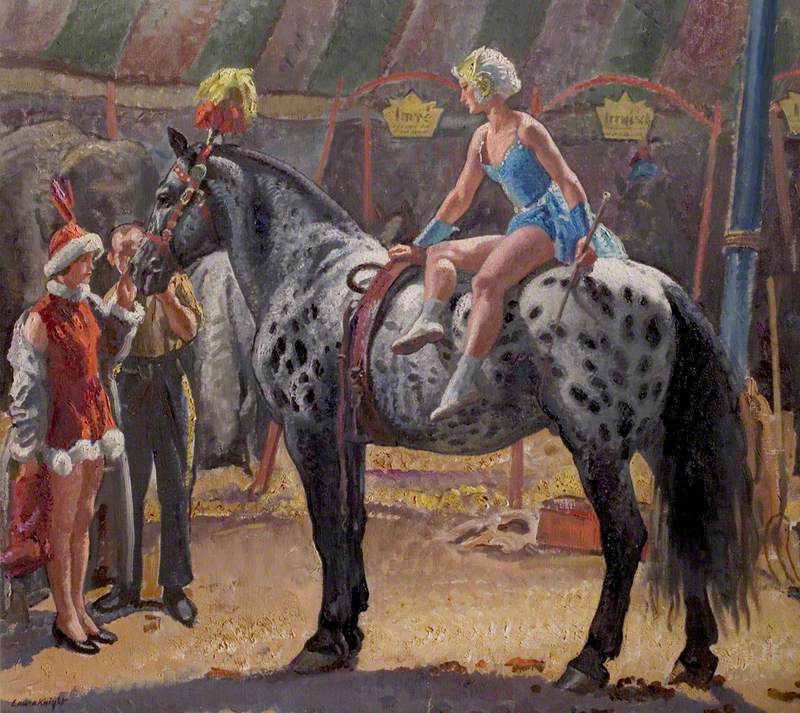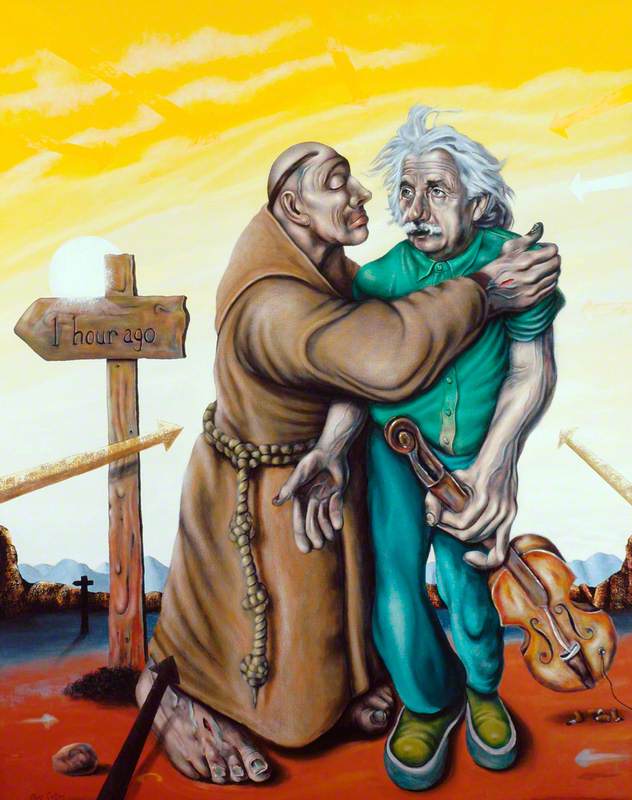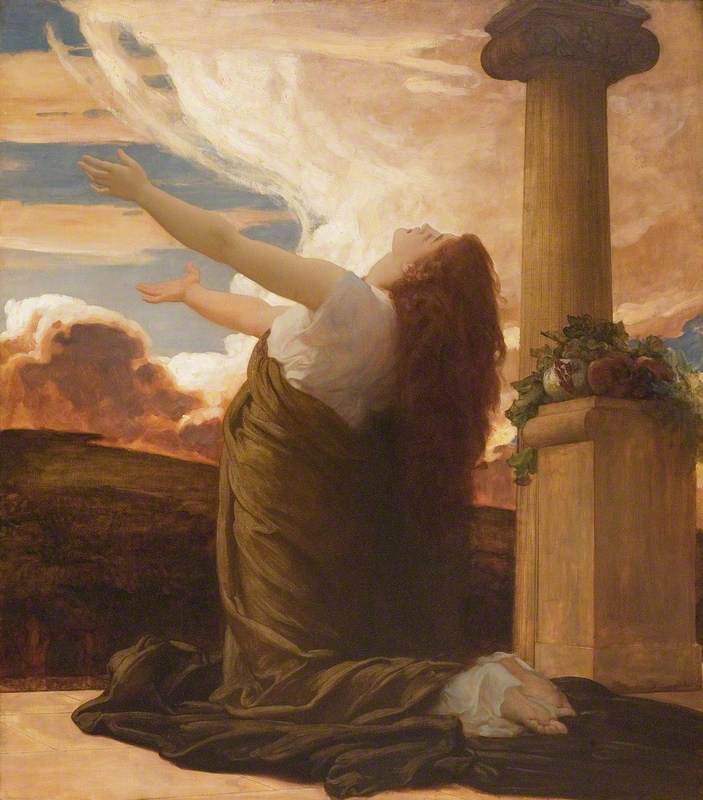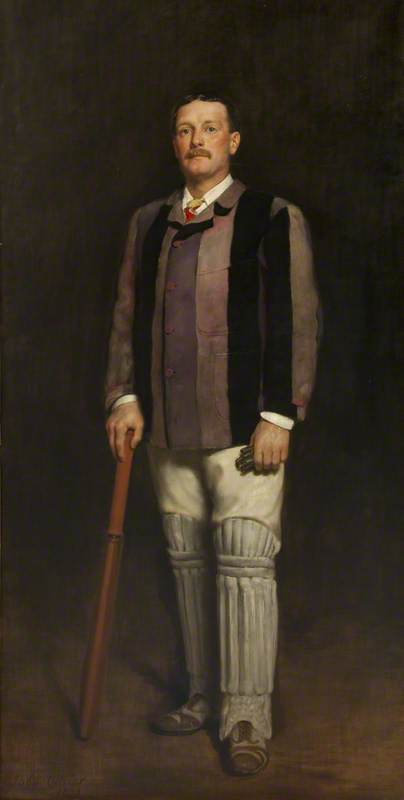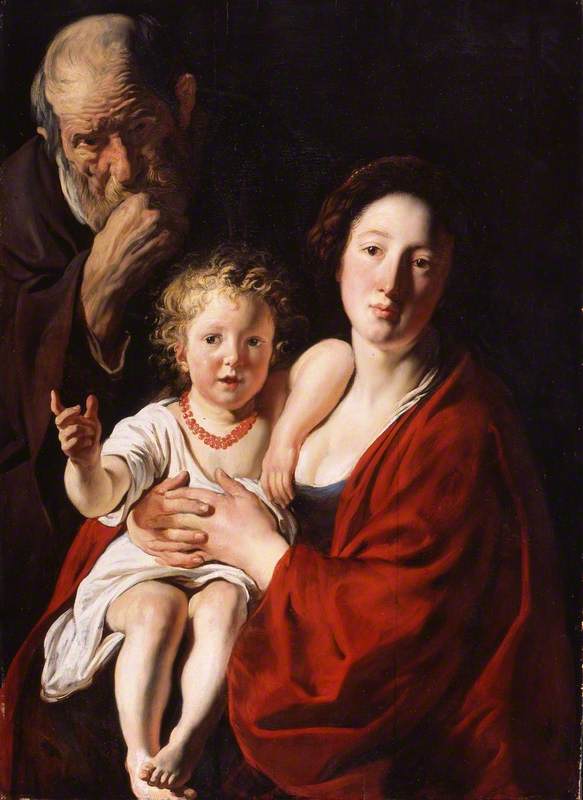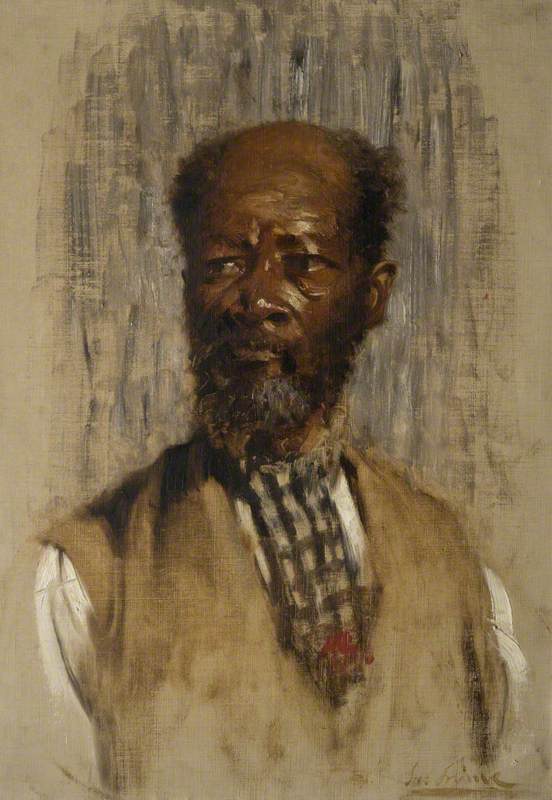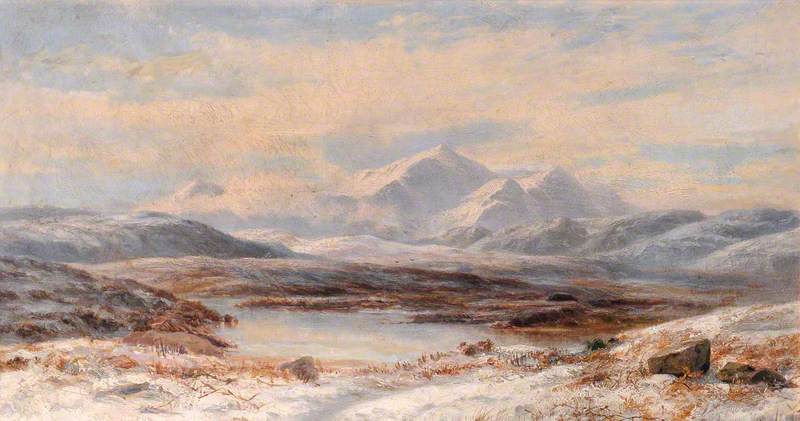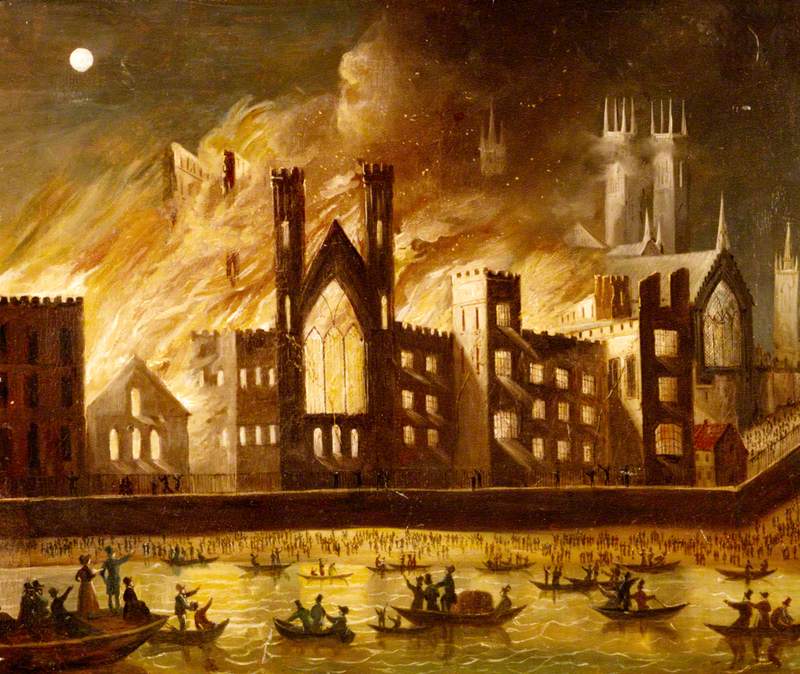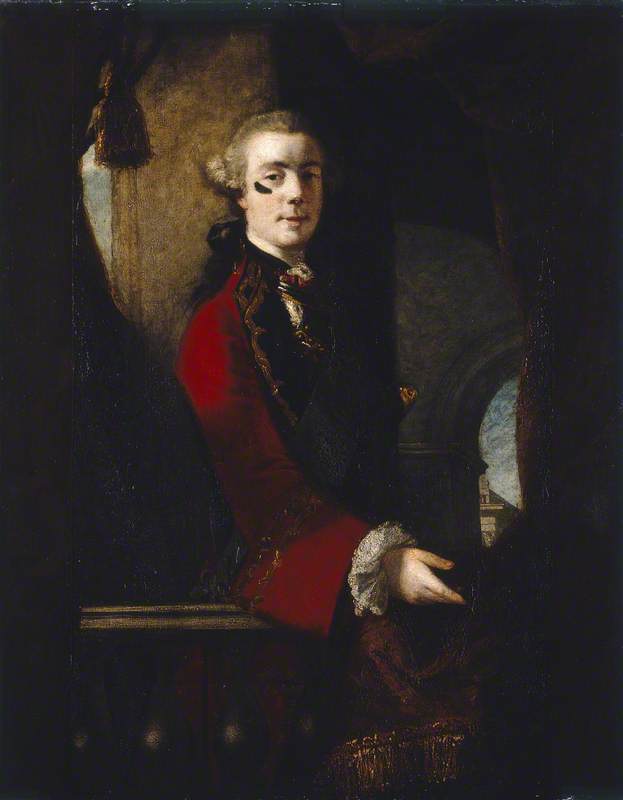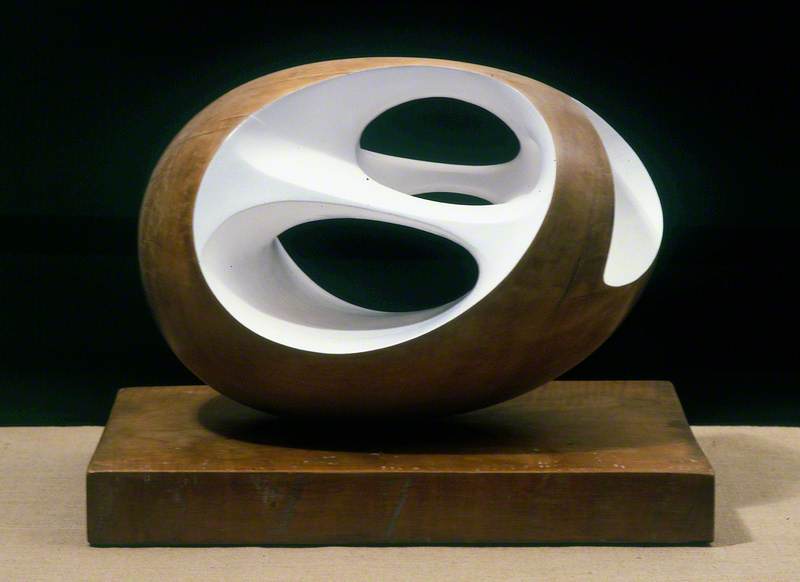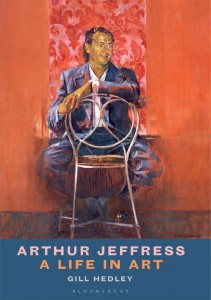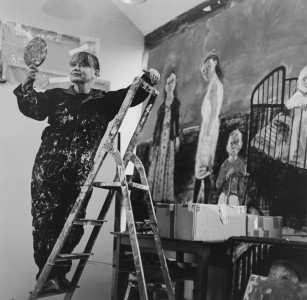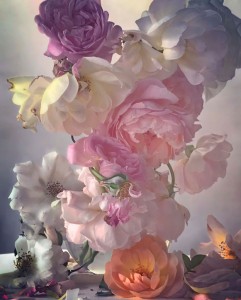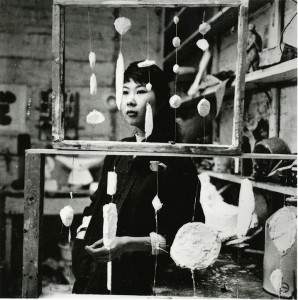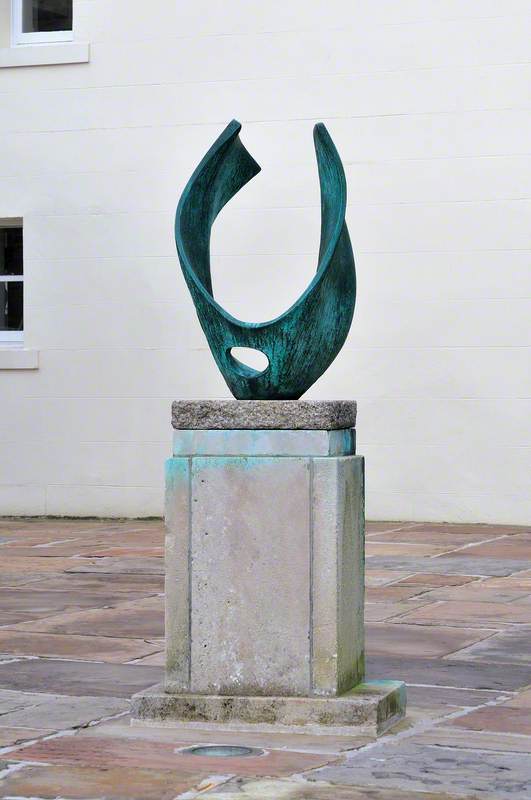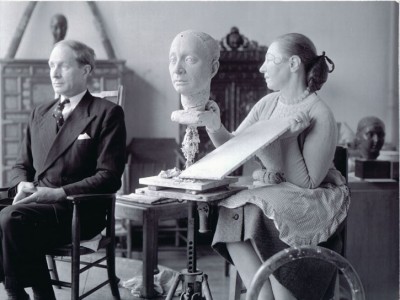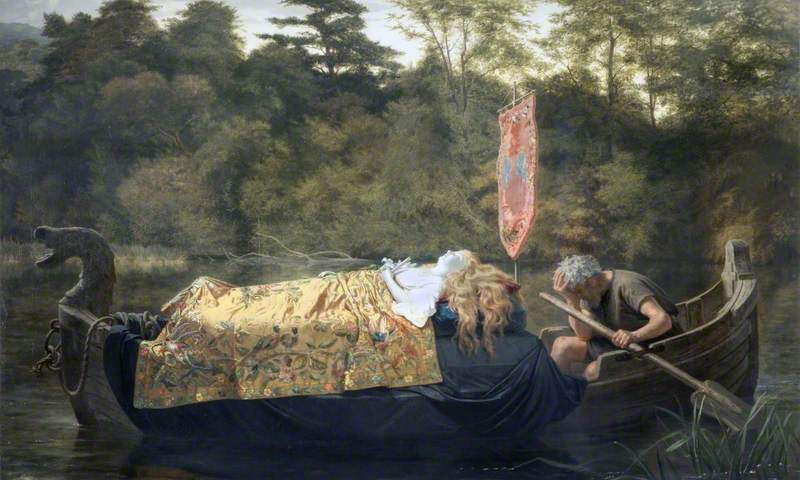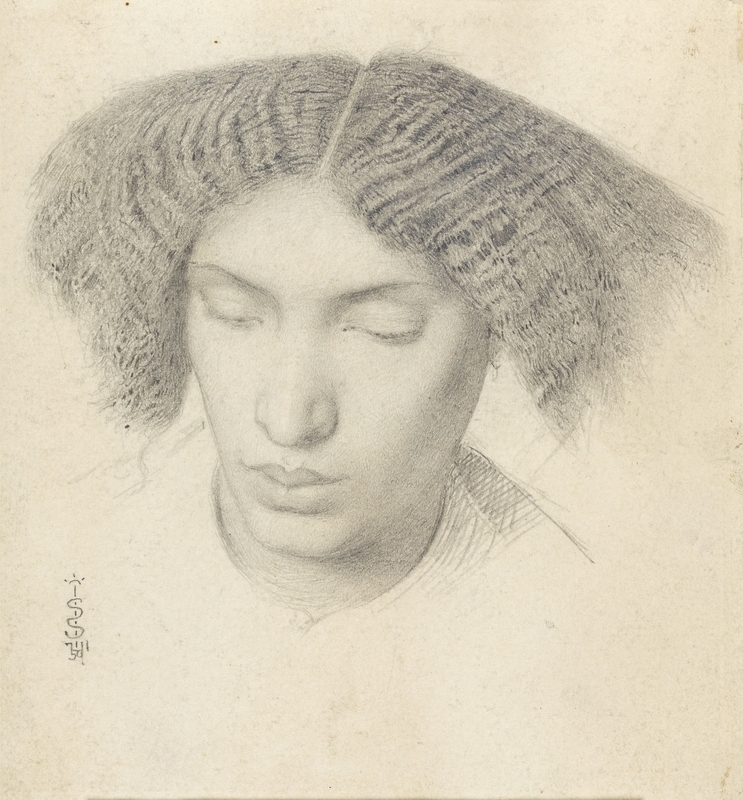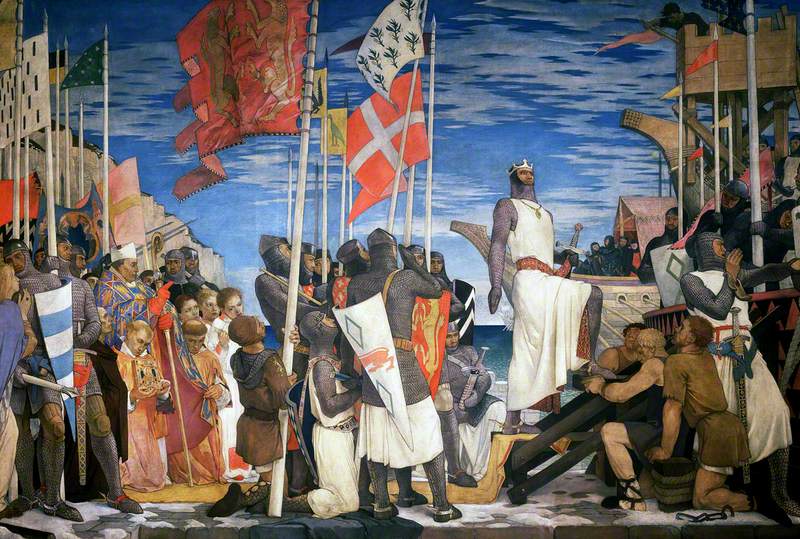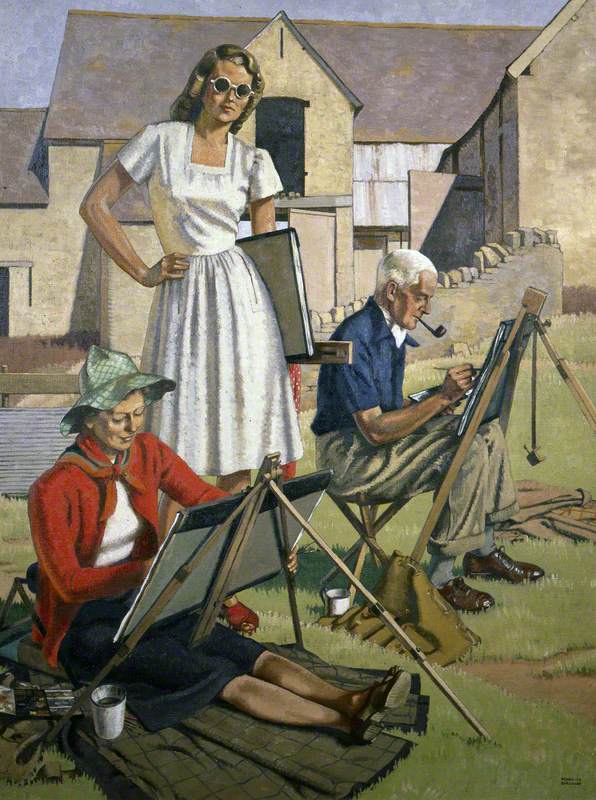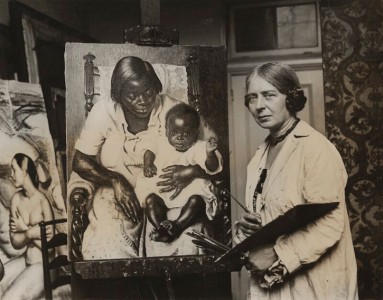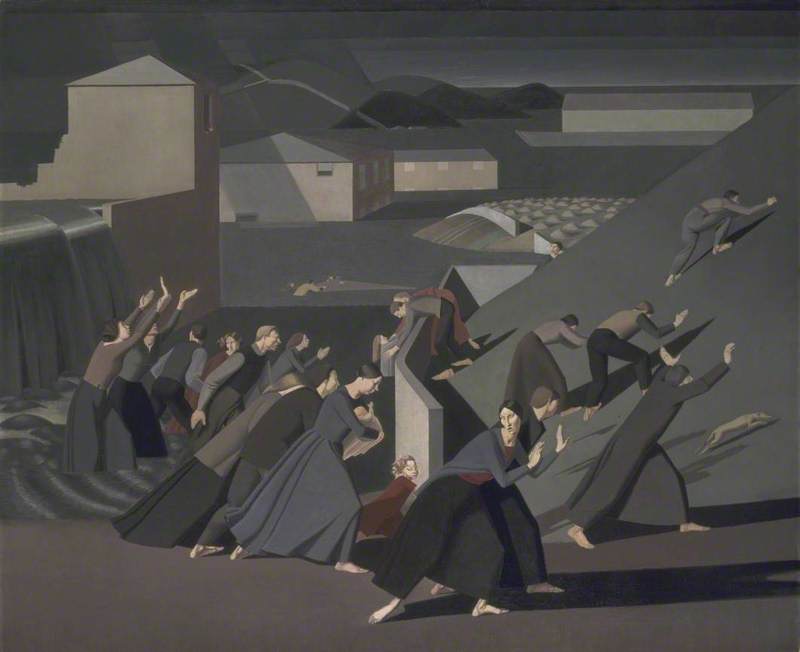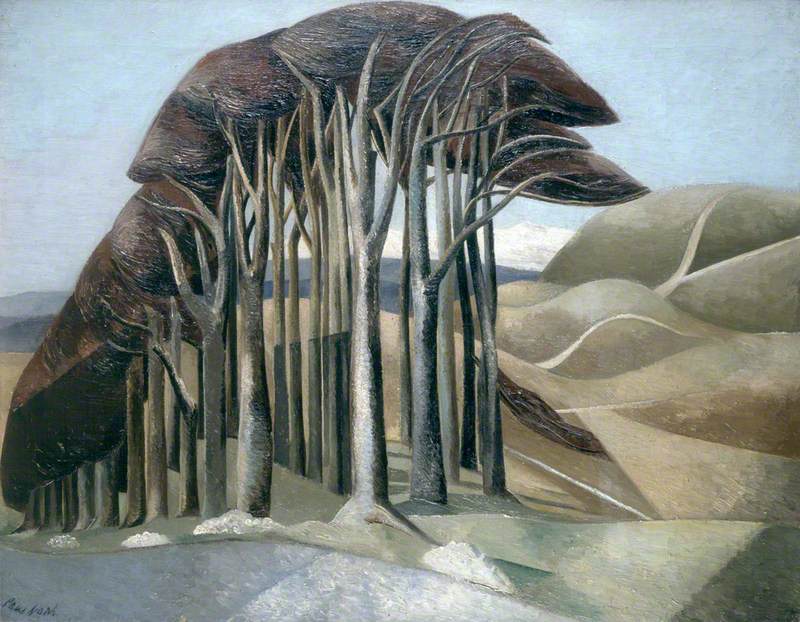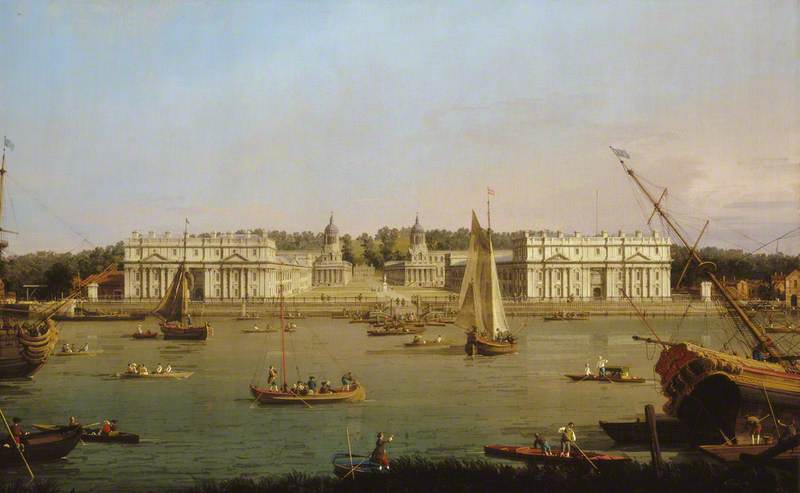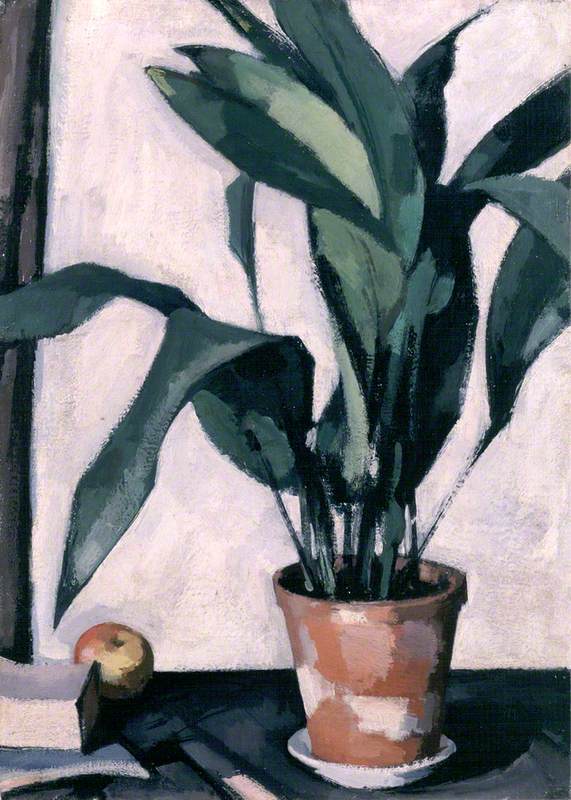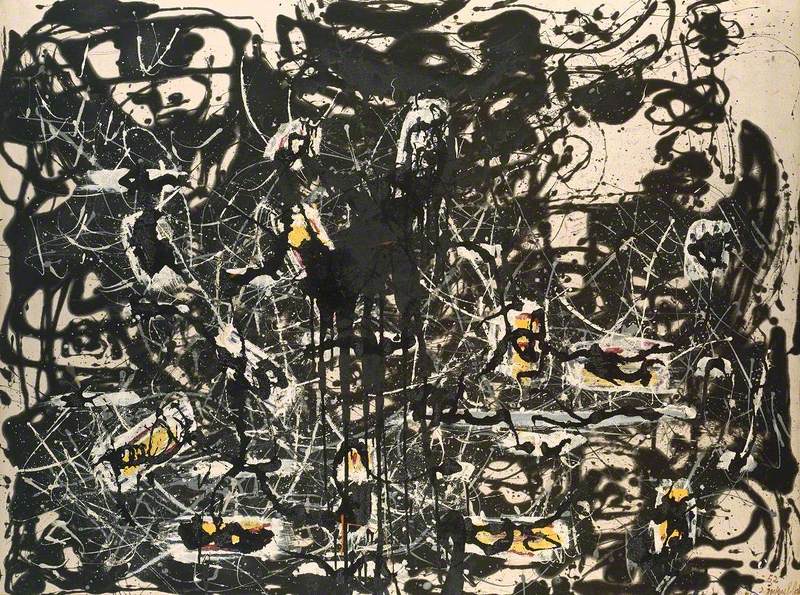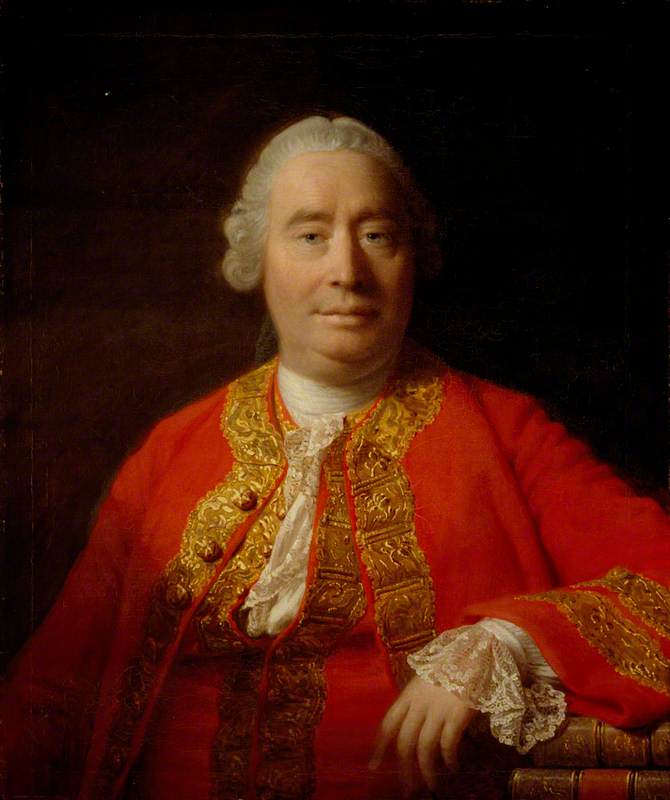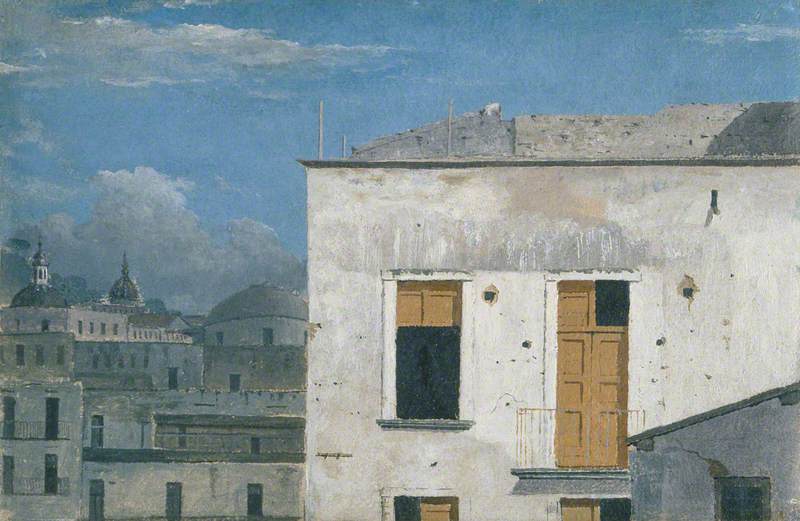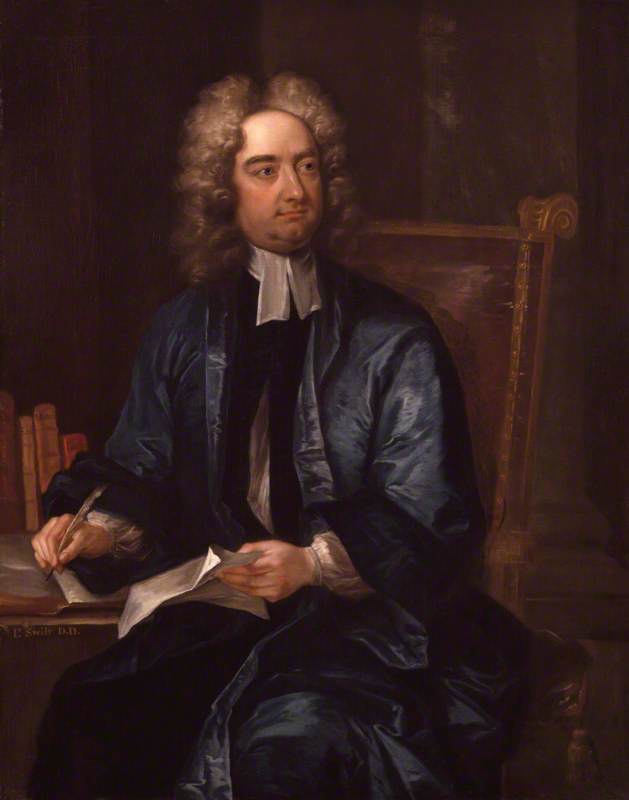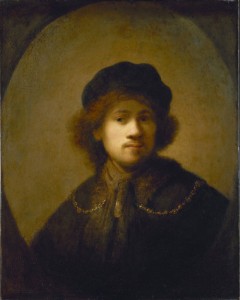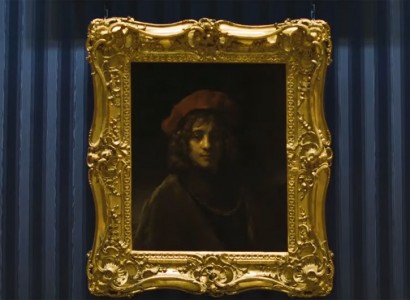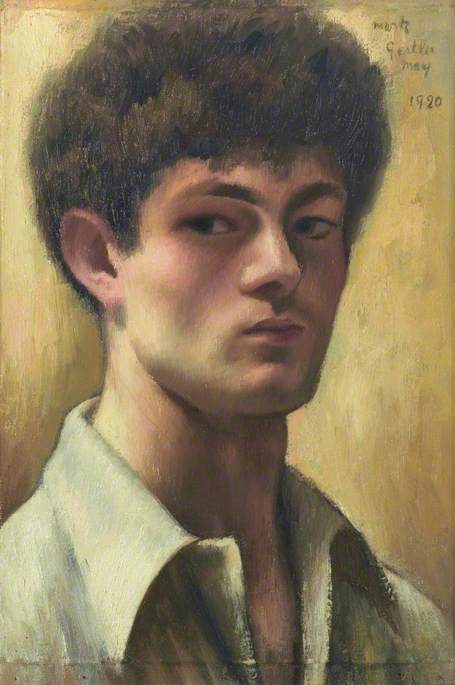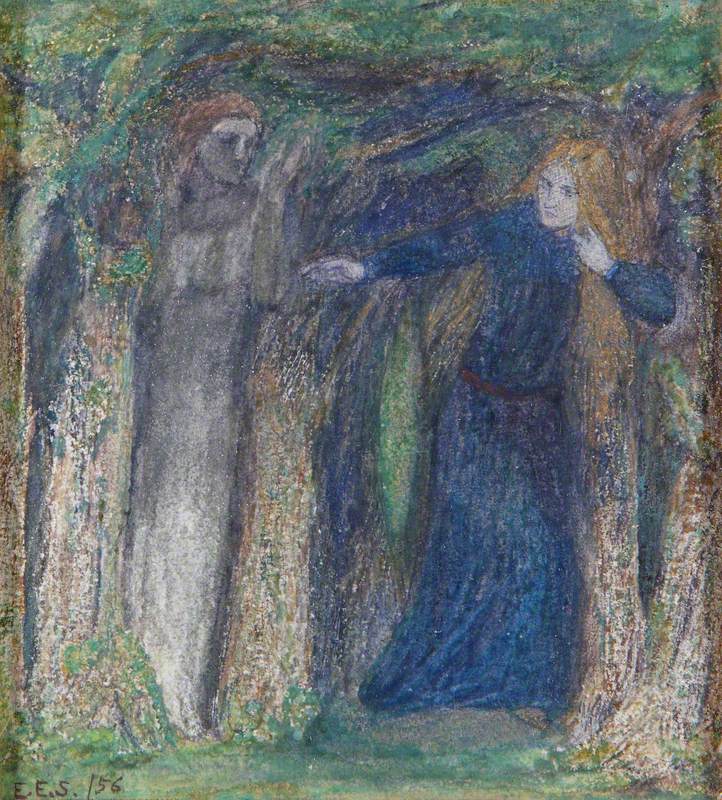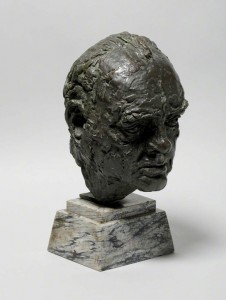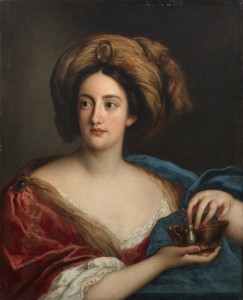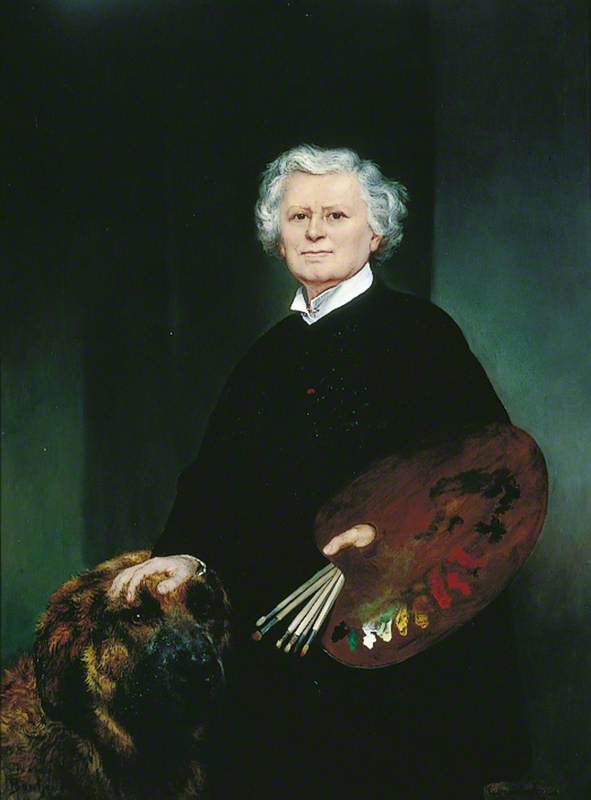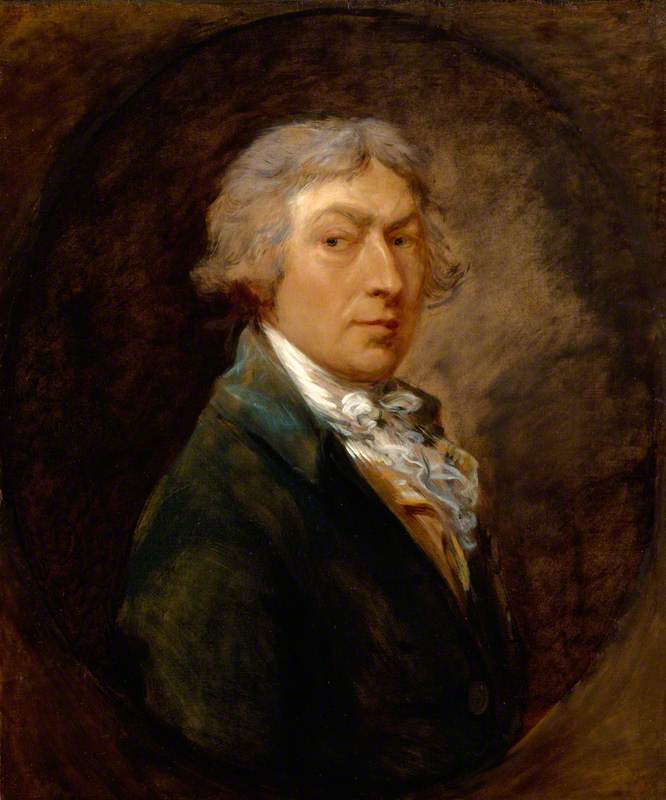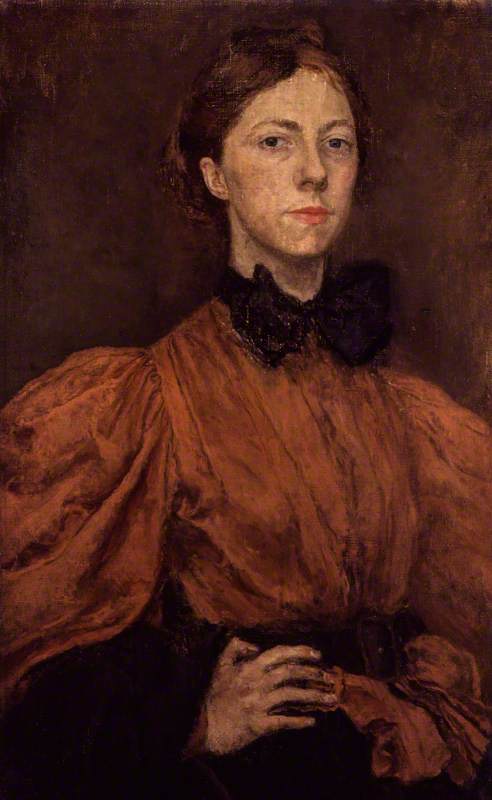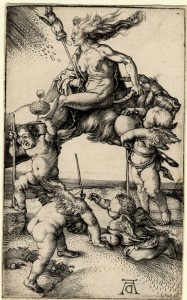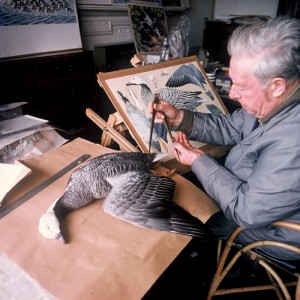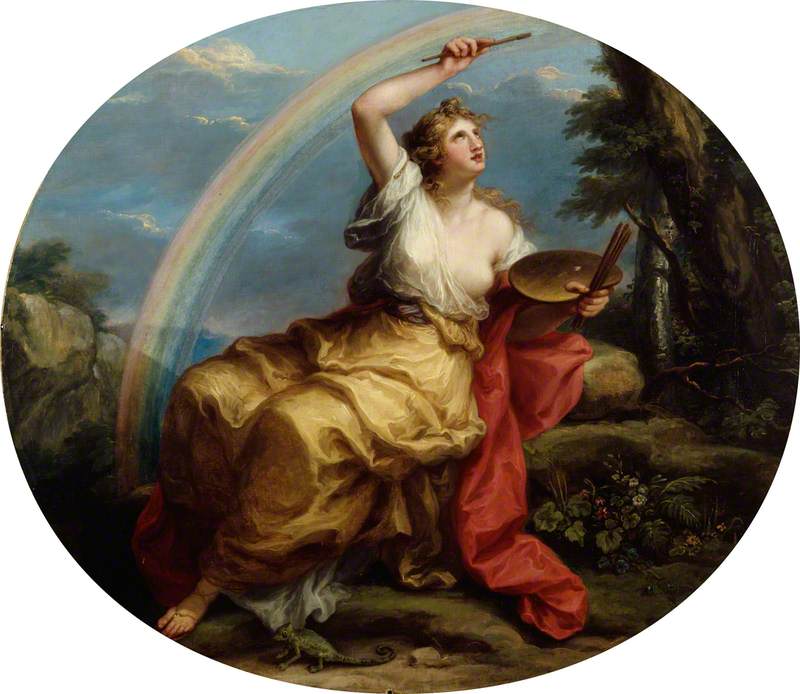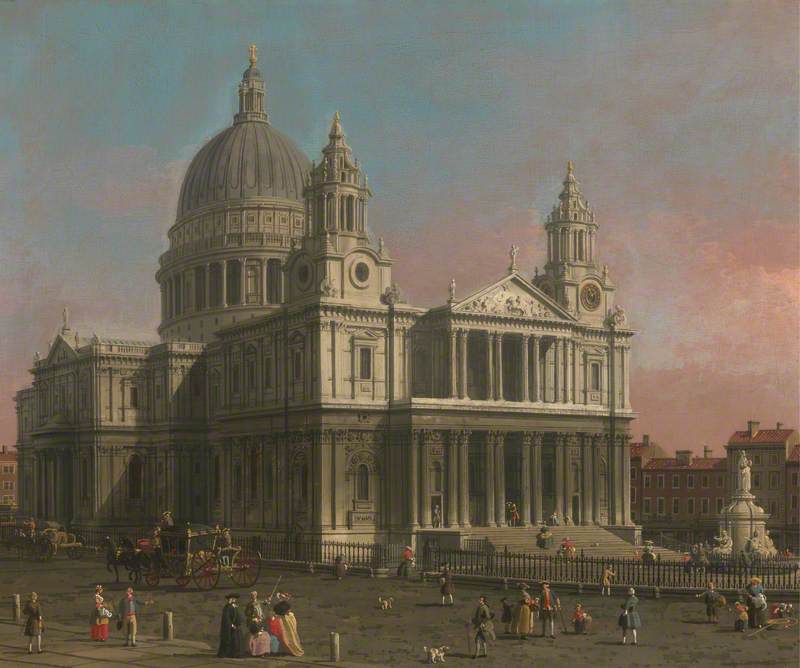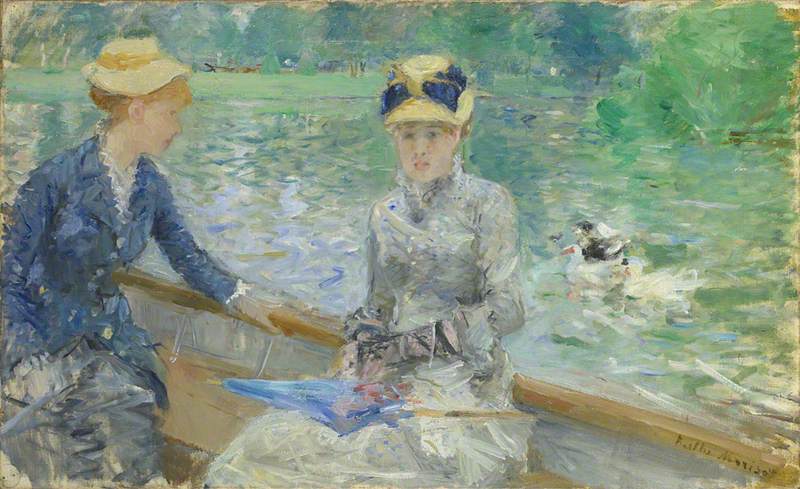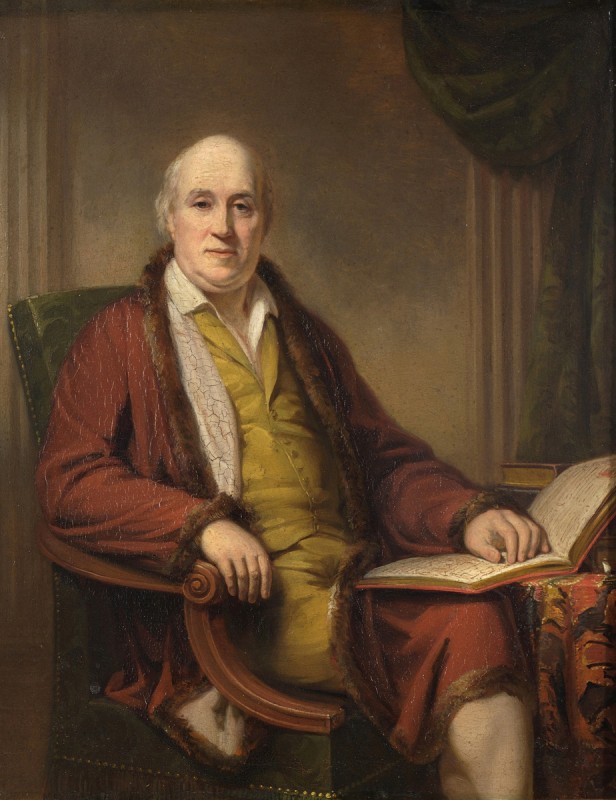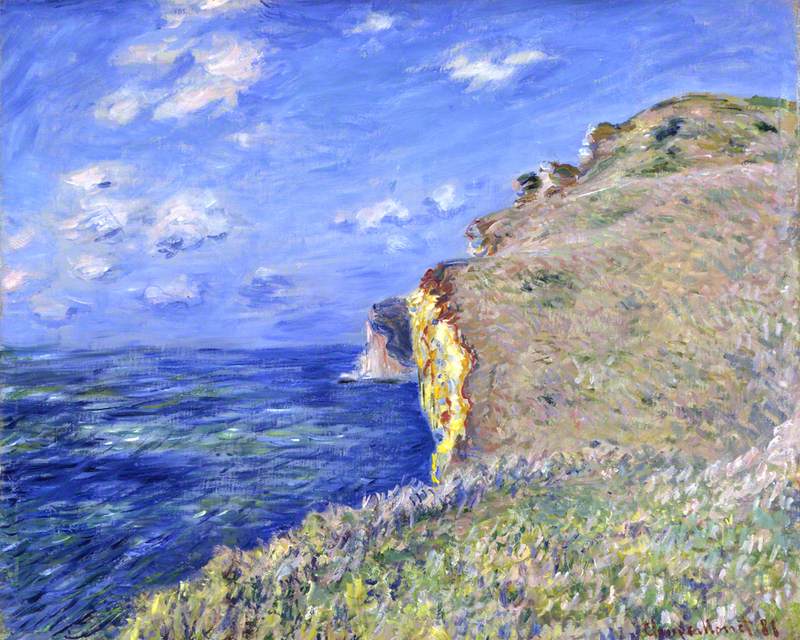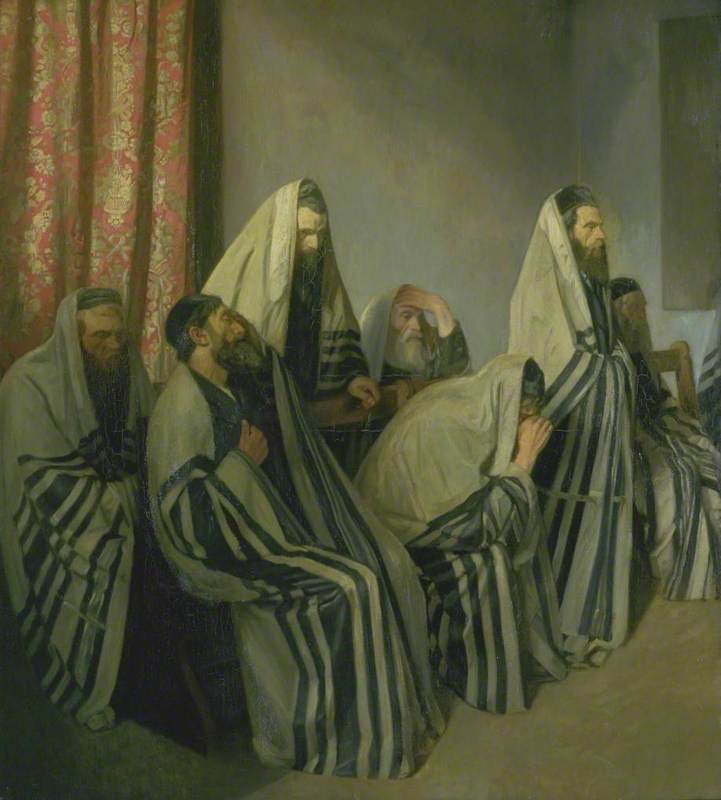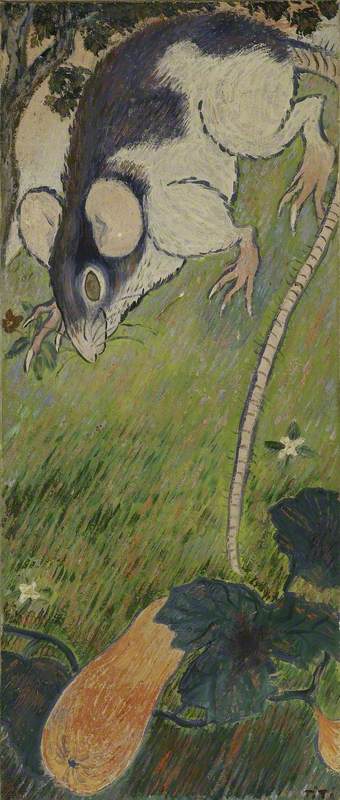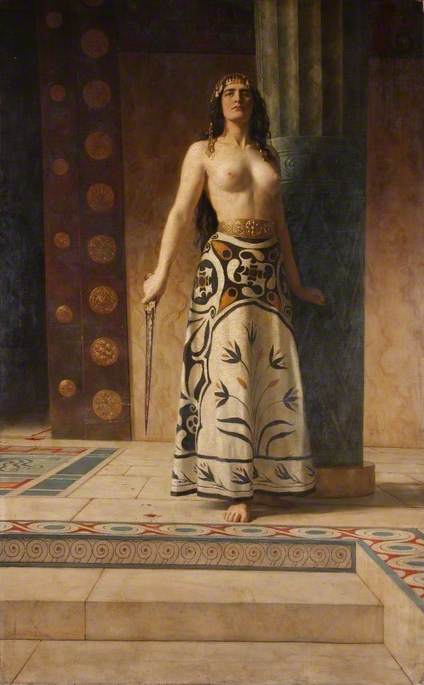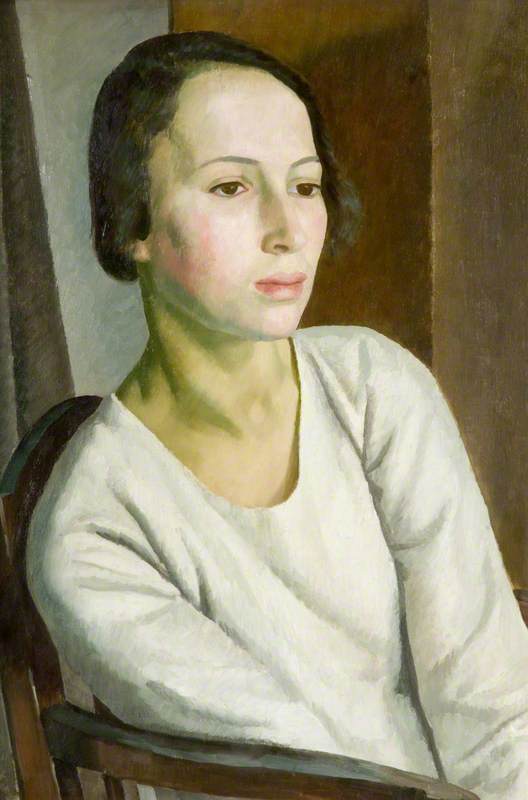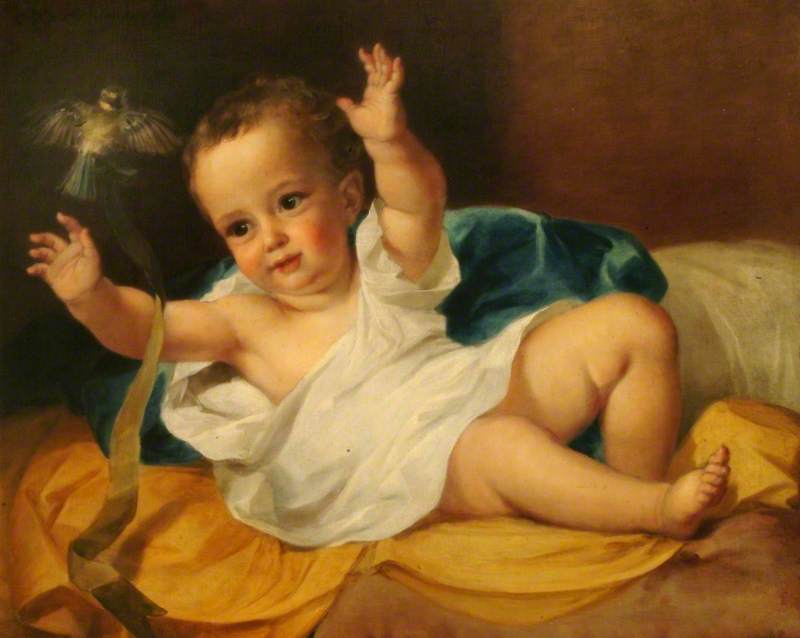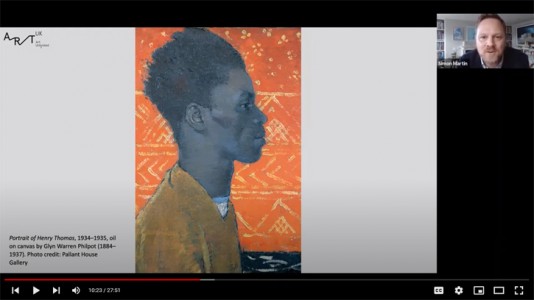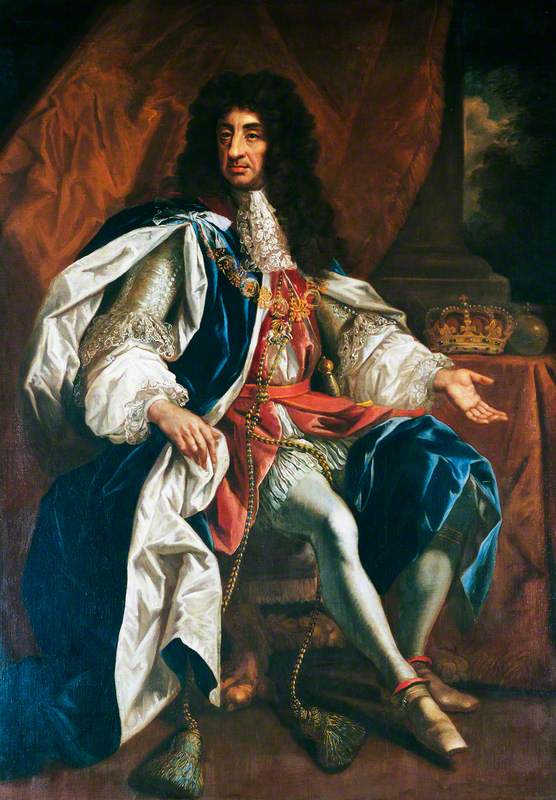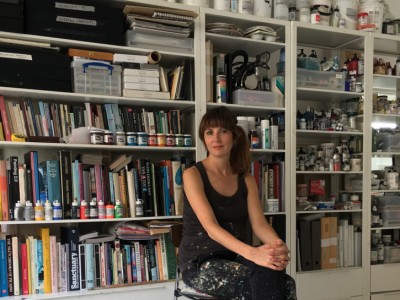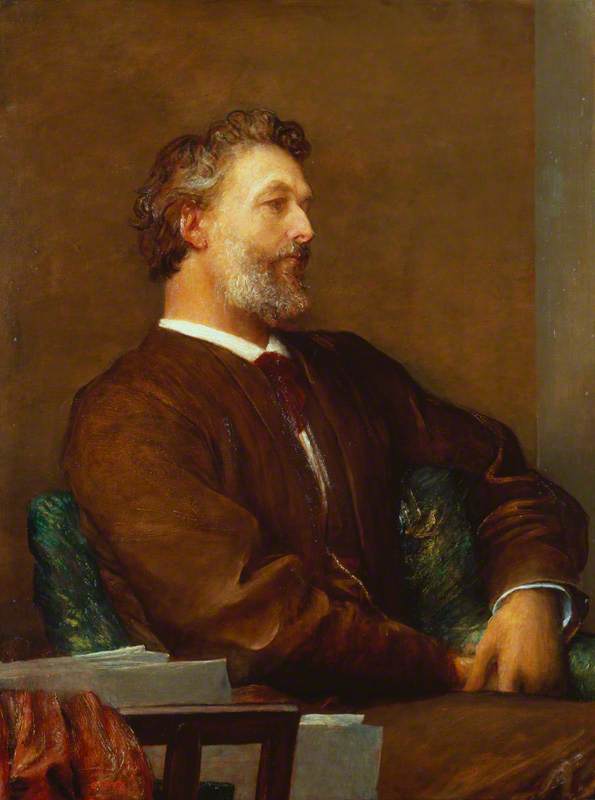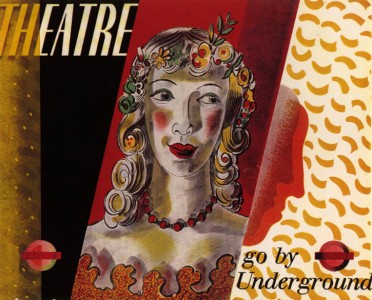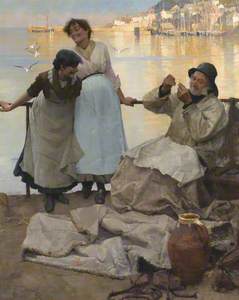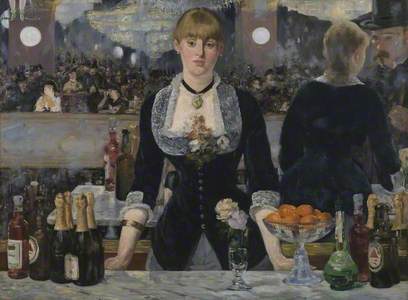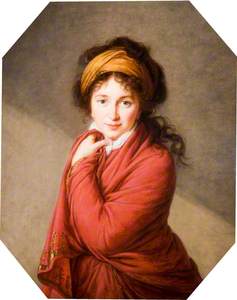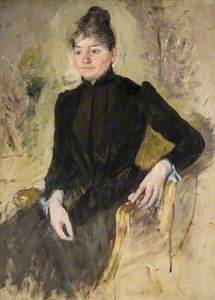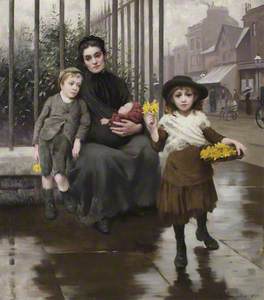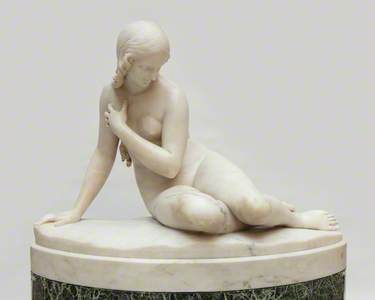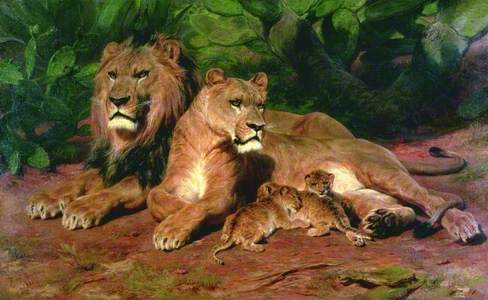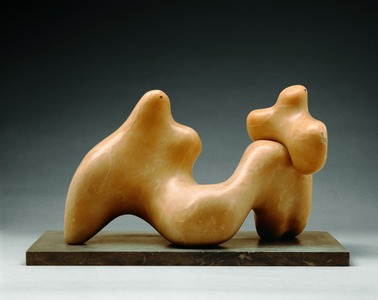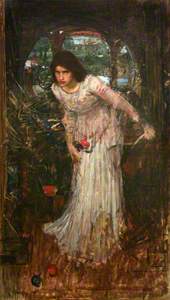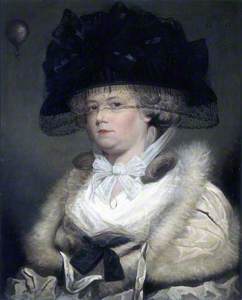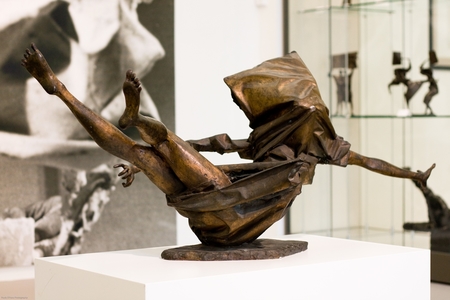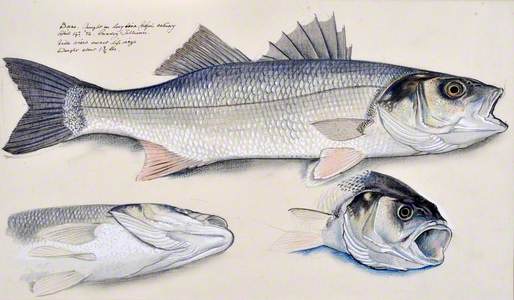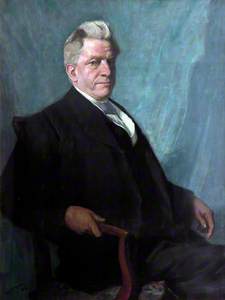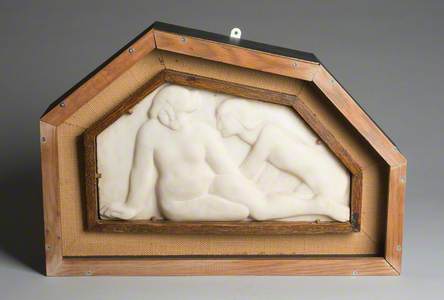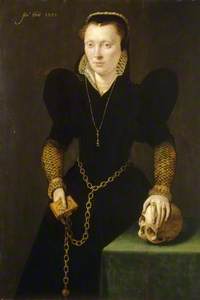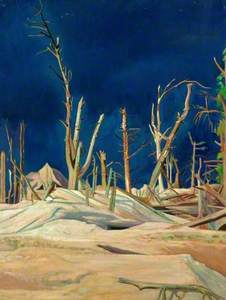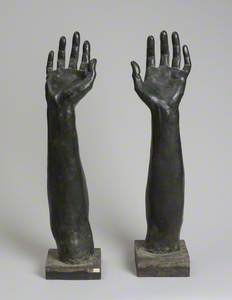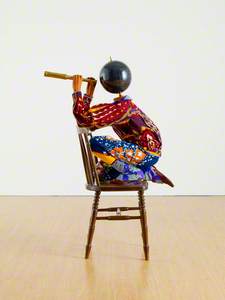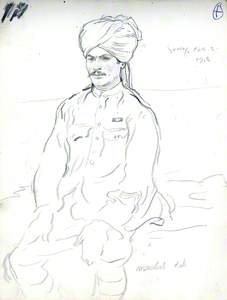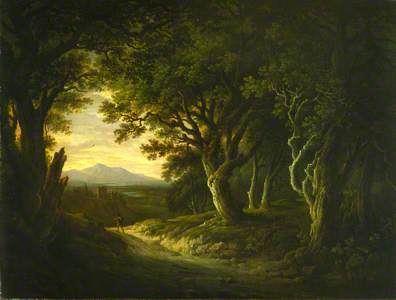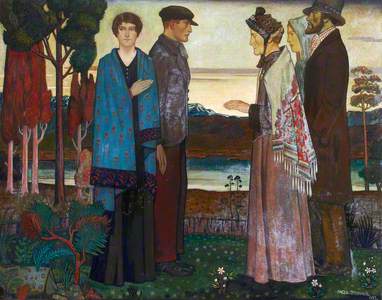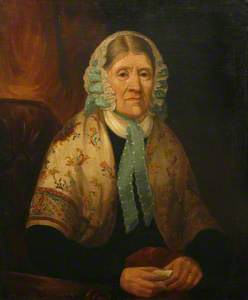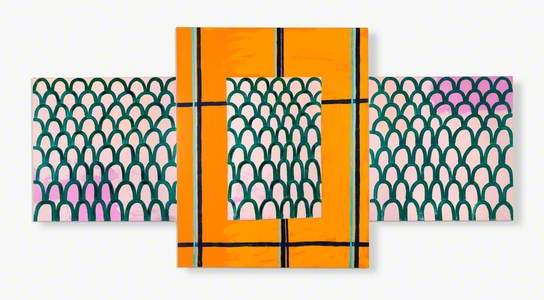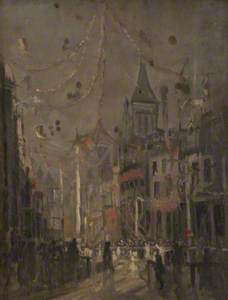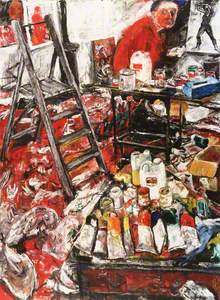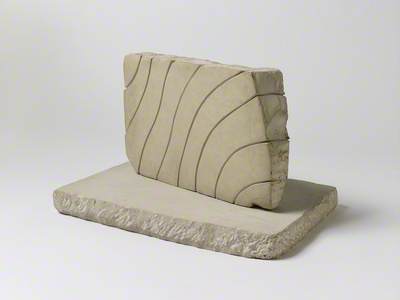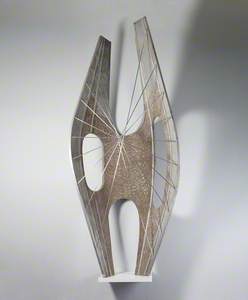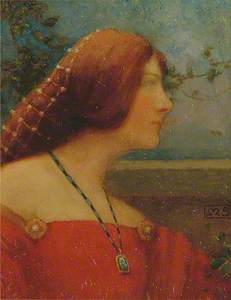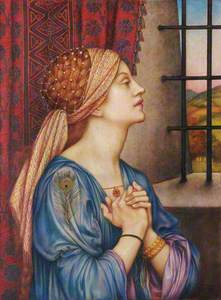Since the start of the COVID-19 lockdown, Art UK has joined forces with The Guardian and public collections across the UK to create the daily Great British Art Quiz. Every weekday, a quiz set by a different public museum or gallery engaged with artworks found on Art UK.
To celebrate the publication of 100 quizzes (and the final bumper 101st), we look back at some of the quirkiest facts and trivia about art and artists in public museums in the UK. (Please note that the competition relating to the final quiz has now closed.)
Continue scrolling to see what you might have missed...
A 'Forest Floor' Still Life of Flowers
Rachel Ruysch (1664–1750) 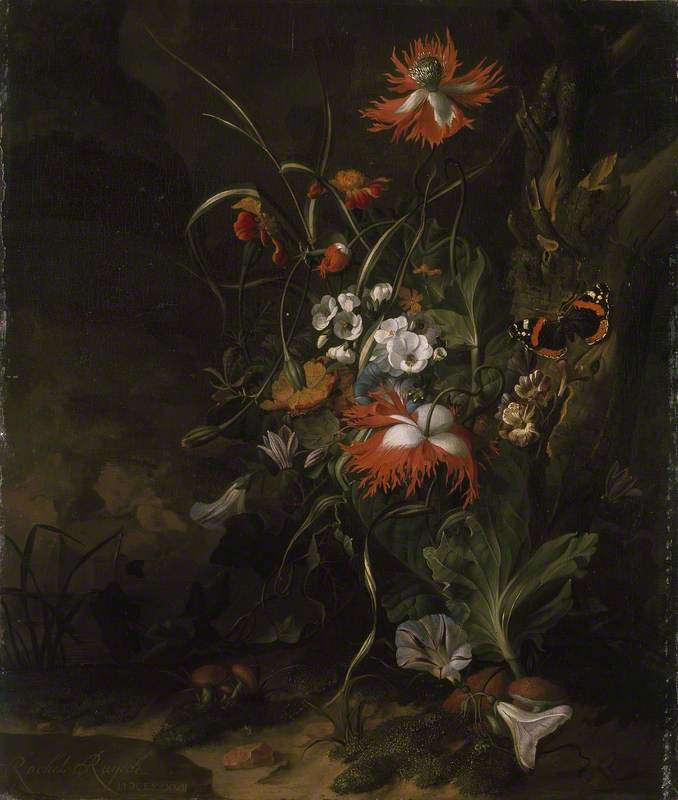
The Dutch artist Rachel Ruysch painted this 'forest floor' still life now housed in the Ashmolean Museum, Oxford. She specialised in still life and flower paintings and was one of the best known female artists of the seventeenth century, even becoming the court painter to the Elector Palatine, Johann Wilhelm in Düsseldorf.
The Scottish artist Edward Atkinson Hornel, whose work can be found in the National Trust for Scotland was greatly influenced by Japanese culture and photography.
This painting in the collection of Museums Sheffield depicts the Parisian attic studio of Welsh artist Gwen John, who had moved to Paris in 1904 to study under James Abbott McNeill Whistler.
The Bangladeshi artist Kanak Champa Chakma is also an activist for the Chakma Hill people. She is known for her paintings focusing on the lives of women and this one is from Gallery Oldham.
Modèle assise dans un fauteuil, se coiffant / Model Seated in a Chair, Combing Her Hair
c.1903
Jean-Édouard Vuillard (1868–1940) 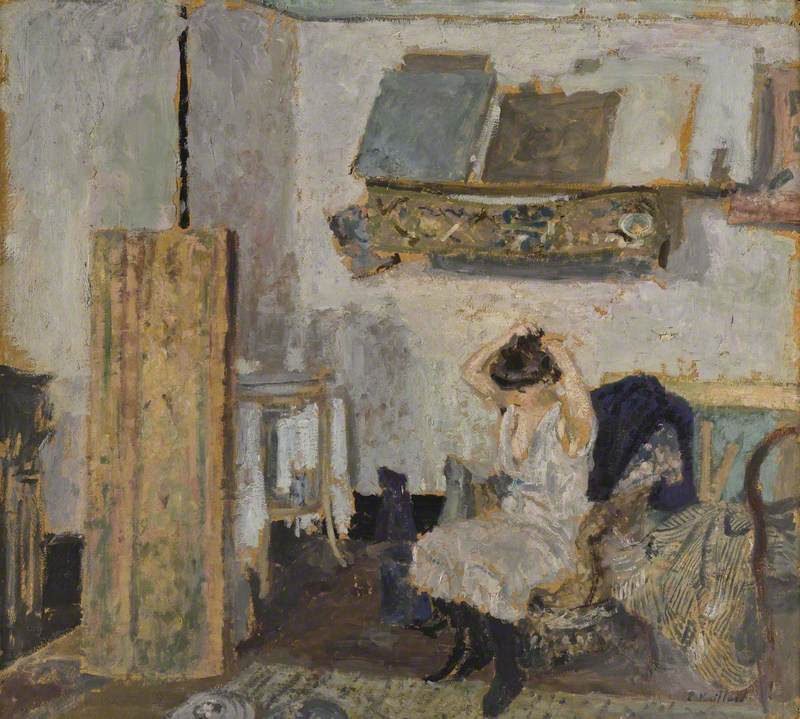
French artist Édouard Vuillard painted this portrait in 1903. It depicts a brunette model in the artist's studio in Rue Truffaut in Paris, where his mother ran a family sewing business. It was recently acquired by Pallant House Gallery in Chichester as part of the Acceptance in Lieu scheme.
The Newlyn School artists who worked in the Cornish town of Newlyn often used the 'Square Brush' technique to give the paint surface a particular vibrancy. This painting is in the collection of Penlee House Gallery & Museum in Penzance.
General Johnson Saving a Wounded French Officer from a North American Indian
c.1768
Benjamin West (1738–1820) 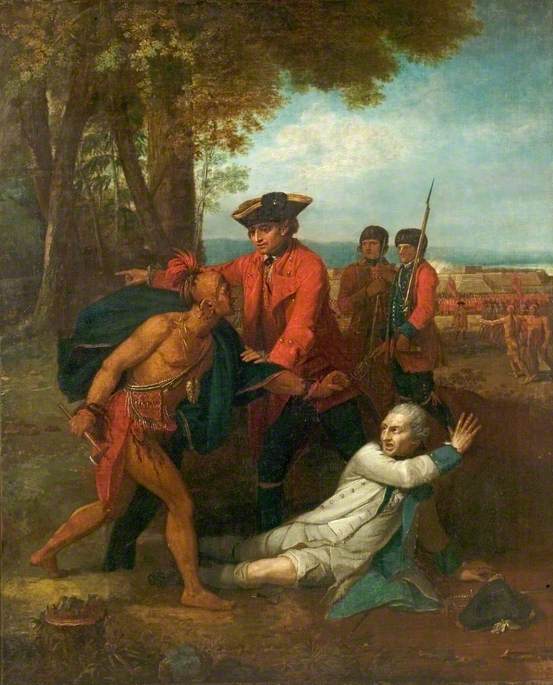
Benjamin West's painting in Derby Museum and Art Gallery depicts the Seven Years' War. West was an American-born artist who settled in London.
Found in the collection of the Holburne Museum, Bath, Thomas Gainsborough painted this portrait of the Byam Family in the early 1760s – but retouched it after it was finished. He added the couple's child, and also changed the colour of Mrs Byam's dress from pink to fashionable blue. Who needs Photoshop?
The woman in this painting by Lorenzo Lippi represents the allegory of fortune. It's in the collection of Ulster Museum in Belfast. The monkey, who appears to be selecting playing cards, symbolises chance. This theme was popular during the Renaissance and is derived from the classical idea of fortune being an unpredictable force which must be seized to ensure success.
The Pre-Raphaelite artist Eleanor Fortescue-Brickdale painted this work found in the Walker Art Gallery (part of National Museums Liverpool) in 1905. She studied art in London, working firstly as an illustrator before teaching at the Byam Shaw School of Art.
The Biblical figure in this painting by Paolo Veronese is Saint Jerome and housed in the Dulwich Picture Gallery. This is one of the four remaining fragments of the Petrobelli Altarpiece, which was cut up and divided in the eighteenth century.
In the late Georgian period, this large gentleman named Daniel Lambert was known for being the heaviest man in England. He weighed 53 stone (335 kg). This painting is housed in Compton Verney, Warwickshire.
Diego Velázquez was only around 18 years old when he painted this work An Old Woman Cooking Eggs (1618) housed in the National Galleries of Scotland. The young artist began his career by painting many kitchen and tavern scenes, known as 'bodegones' in Spanish.
The Sleeping Beauty: The Princess Pricks Her Finger on a Spinning Wheel
1913–1922
Léon Bakst (1866–1924) 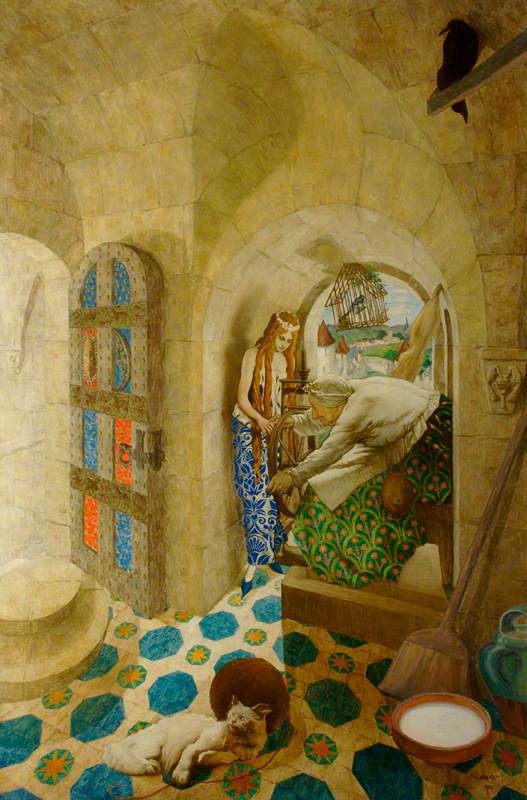
The Russian artist Léon Bakst was commissioned by James de Rothschild in 1913 to paint a set of panels illustrating Sleeping Beauty for his London house, using family members, their staff and family pets as models. This work, which took nine years to complete, is now housed in Waddesdon Manor.
Vanessa Bell found this painting by Paul Cézanne in a hedge (!) after it was bought by the economist John Maynard Keynes at the sale of the artist's collection in Paris, in 1917. Returning from France by car, Keynes left it as a surprise in a hedge at Charleston, the house in Sussex rented by Bell. It now belongs to the Fitzwilliam Museum, Cambridge.
This famous painting by Édouard Manet found in the Courtauld Gallery shows a barmaid at the Folies-Bergère in Paris. The red triangles on the bottles to the left and right in the painting show that she was serving Bass pale ale, thought to be the first trademark ever registered in the UK. The sale of this English ale at the Folies-Bergère added to the venue's reputation as a cosmopolitan spot.
The actress Sarah Siddons famously fainted at the sight of the Parthenon Marbles. She became widely known for her roles in tragedy, her most famous being Lady Macbeth. This painting by Thomas Gainsborough is found in y Gaer Museum, Art Gallery & Library, Wales.
Countess Golovina (1766–1821)
1797–1800
Élisabeth Louise Vigée Le Brun (1755–1842) 
One of the most popular paintings in the Barber Institute of Fine Arts, this portrait of Countess Golovina by French artist Élisabeth Vigée Le Brun was painted during the artist's exile from revolutionary France in the 1790s.
Paul Nash created this dark seascape between the 1920s and 1930s, while he was living in Dymchurch on the Kent coast, not long after serving during the First World War. It reflects his poor mental health and his conflict with being a 'war artist without a war'. Now, it is one of the most popular artworks housed in York Art Gallery.
Chiswick House, Middlesex
c.1742
George Lambert (c.1700–1765) and William Hogarth (1697–1764) 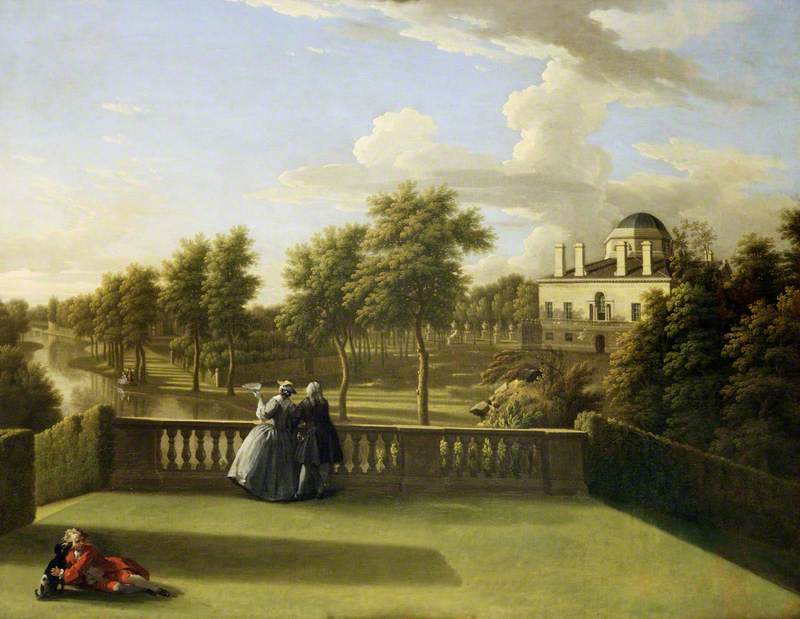
This view of Chiswick House and Gardens belongs to the English Heritage collection. Although the landscape was painted by George Lambert, the figures in the foreground were completed by the artist William Hogarth.
Hands of Thomas Carlyle (1795–1881)
c.1874
Joseph Edgar Boehm (1834–1890) 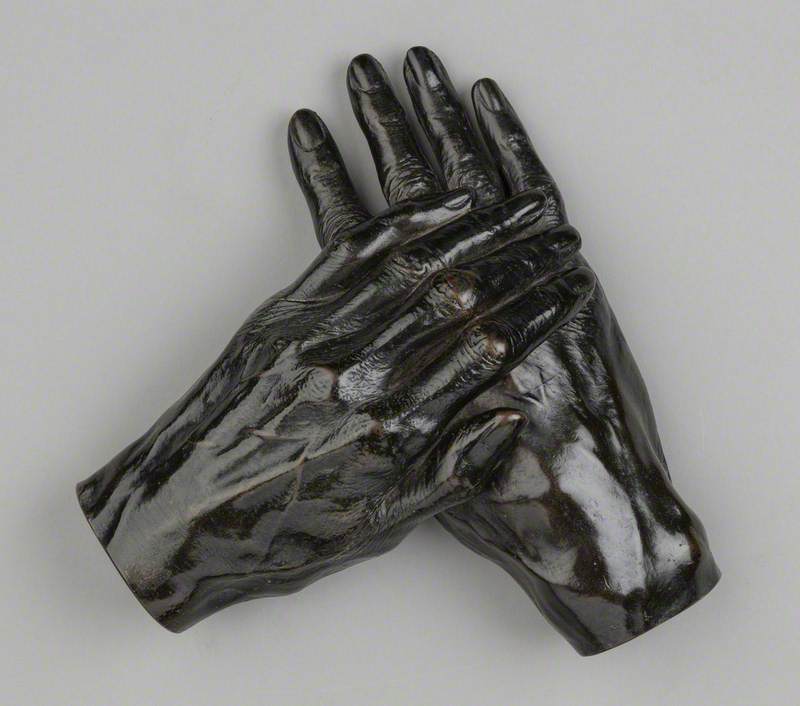
These are the hands of the British historian, satirical writer, essayist, philosopher, mathematician and translator, Thomas Carlyle. Created by Joseph Edgar Boehm in 1874, they can be found in Carlyle's House, run by the National Trust.
Hecate: Procession to a Witches' Sabbath
before 1620
Jusepe de Ribera (1591–1652) 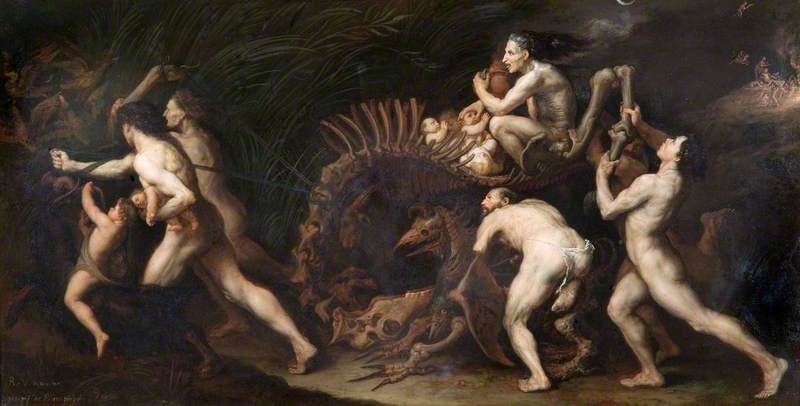
The artist Jusepe de Ribera painted this work inspired by the Greek goddess of magic, Hecate. Her retinue included those who died before their time. The work is housed in the Wellington Collection, Apsley House.
This panorama by Niels Møller Lund was painted from the rooftop of the Royal Exchange and belongs to the Guildhall Art Gallery. Its title refers optimistically to the British Empire at its height.
Impressionist painter Mary Cassatt created this portrait of an unknown woman, now housed in the collection of the Birmingham Museums Trust. It is one of only two oils by the artist in a UK public collection. (The other is in the Kelvingrove Art Gallery and Museum in Glasgow.)
This painting by John Martin depicts the Biblical story of Sodom and Gomorrah and can be found in Laing Art Gallery, Newcastle. You can see Lot and his daughters running away in the foreground.
This children's author Jacqueline Wilson was inspired by this painting by Thomas Benjamin Kennington found in the Foundling Museum, London.
Artist Alison Watt was inspired by the French Neoclassical painter Jean Auguste Dominique Ingres when she painted this work found in Aberdeen Art Gallery and Museums.
The poem The World is Too Much With Us by William Wordsworth inspired the artist George Frederick Watts to create this work housed in the Watts Gallery.
Dressed as a Roman general, this statue of William III was commissioned by the Bank of England and is found in their collection.
The Fair Toxophilites (English Archers, Nineteenth Century)
1872
William Powell Frith (1819–1909) 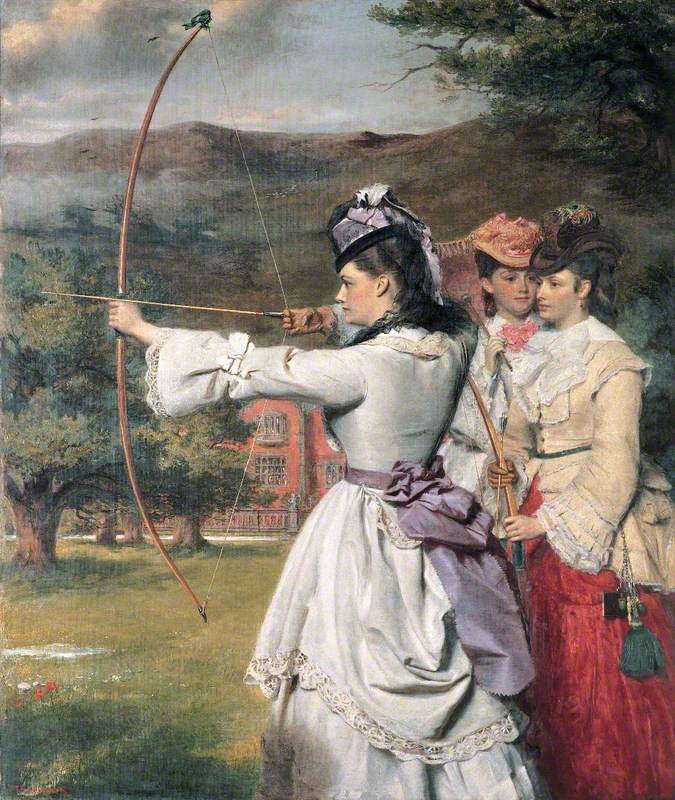
In the nineteenth century, archery became a suitable sport for young women. This work by William Powell Frith is housed in Exeter's Royal Albert Memorial Museum.
Still Life with a Lobster, Fruit, Silver and China Ware
c.1660
Abraham van Beyeren (1620/1621–1690) 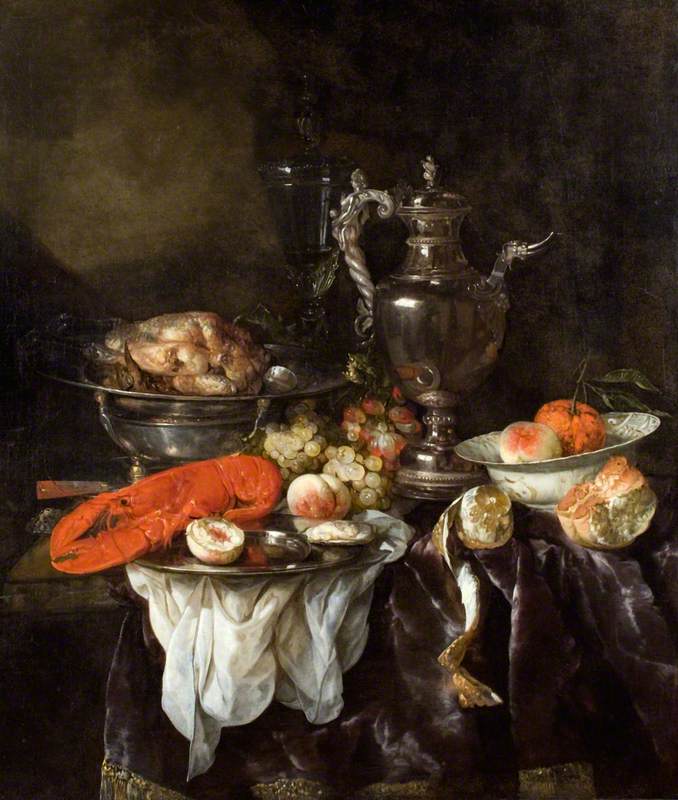
Dundee's McManus Gallery holds this sumptuous work by Abraham van Beyeren. If you look carefully into the silver jug, you can see a reflection of the artist.
The landscape painter John Sell Cotman taught the Pre-Raphaelite artist Dante Gabriel Rossetti. This work belongs to the Norfolk Museums Service collection.
We know this painting by Claude Monet in The National Gallery, London was painted outdoors because there are some grains of sand embedded in the paint.
This work in the Imperial War Museum is by Laura Knight. Although industrial machinery was a new element in her art, she excelled in representing it with great accuracy. The subject here is Ruby Loftus, who was also adept at proving herself in a traditionally male environment.
Eve at the Fountain was the first art acquisition of the Bristol Museum and Art Gallery. The artist Edward Hodges Baily is possibly best known for creating the statue of Lord Nelson on Nelson's Column in Trafalgar Square.
Kenneth Mackenzie Clark (1903–1983), Baron Clark
1931–1933
Dora Gordine (1895–1991) and Morris Singer Art Foundry Ltd 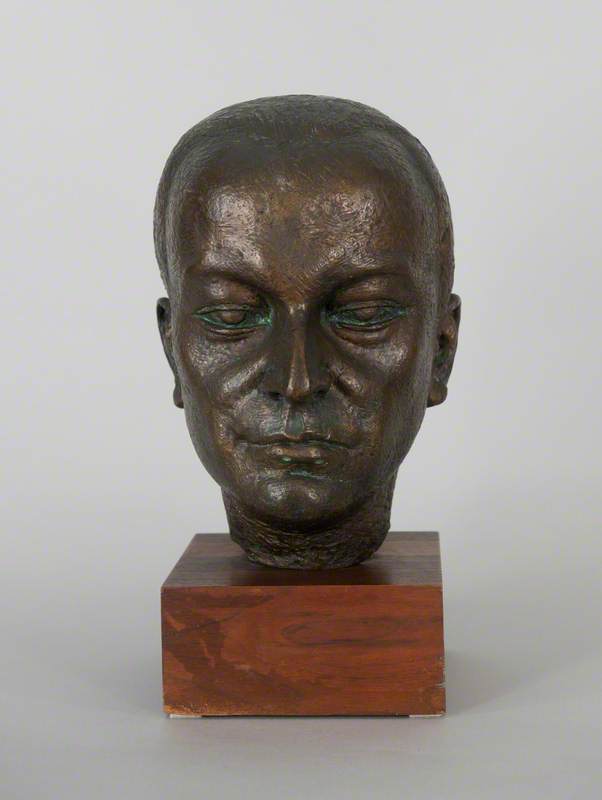
Dora Gordine's portrait head of the art historian Kenneth Clark was delayed in 1944 after she broke her wrist. It can be viewed at the Dorich House Museum, London.
This painting in the Wellcome Collection is by Ellie of Nashville, who happens to be an elephant.
The Wallace Collection holds Frans Hals's Laughing Cavalier, in which the jovial gentleman wears a costume embroidered with lovers' knots, flaming cornucopia, and arrows. These emblems are all symbolic of the pleasures and pains of love, leading to suggestions that this work was painted as a betrothal portrait.
This large canvas of lions is by French artist Rosa Bonheur. It is housed in Ferens Art Gallery in Hull, the home of Hull City football club, known as the tigers...!
Jewish artist Mark Gertler was a prolific painter who also designed packaging for Cadbury's chocolate. This painting of a Basque shepherdess can be found in the Potteries Museum & Art Gallery.
Barbara Hepworth created this sculpture Large and Small Form (1934) using white alabaster. It now belongs to the collection of the Pier Arts Centre.
The Lady of Shalott
(from the poem by Tennyson)
John William Waterhouse (1849–1917) 
Falmouth Art Gallery's most famous work Study for the Lady of Shalott by John William Waterhouse is based on the poem by Alfred, Lord Tennyson. This painting is an oil study for the finished version that resides at Leeds Art Gallery.
William Hogarth's series A Rake's Progress was set in Covent Garden, which, during the artist's time, was one of the roughest areas of London adjoining the slums around Seven Dials and St Giles. This work can be found in Sir John Soane's Museum, London.
This painting in the Science Museum commemorates the life of Mrs Letitia Sage, the 'first English female aerial traveller', meaning she was the first woman to ride in a hot air balloon.
In the early 1970s, F. E. McWilliam created a series of figurative bronze sculptures called the Women of Belfast in response to the Northern Ireland Troubles and, in particular, the Abercorn Tea Room bomb. This is in the F. E. McWilliam Gallery, Banbridge.
Still Life with Boats, St Ives, Cornwall
1930
Christopher Wood (1901–1930) 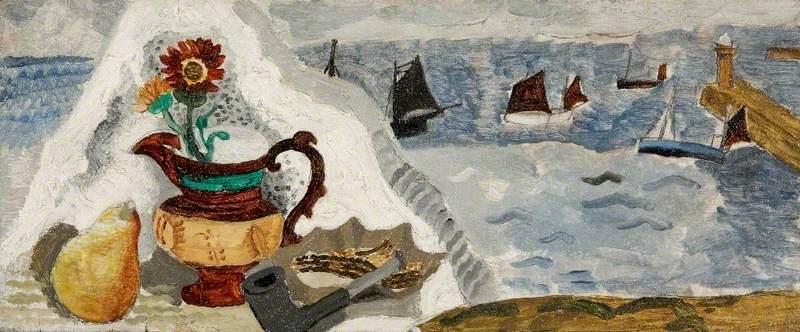
In Swindon Museum and Art Gallery is Christopher Wood's painting from 1930, which depicts the Cornish town of St Ives. There, Wood resided alongside Ben Nicholson with whom he 'discovered' the painter Alfred Wallis.
Charles F. Tunnicliffe produced a personal image library of more than 300 detailed and accurate drawings of wildlife specimens. This illustration of bass fish can be found in the collection of Oriel Ynys Môn, Wales.
RAQS Media Collective was inspired to create this sculpture found in Yorkshire Sculpture Park after looking at Albrecht Dürer's woodcut print of a rhinoceros made in 1515.
This fine painting of a horse is in the National Horseracing Museum in Newmarket. He was one of the finest racehorses of all time, winning over 30 races. But perhaps best of all, his name was a pun. It was written Potoooooooo or Pot-8-Os, but pronounced 'potatoes'!
This portrait of the Jamaican Pre-Raphaelite muse Fanny Eaton, by Joanna Boyce Wells, can be found in the Yale Center for British Art collection. This portrait may have been a study for a painting of Queen Zenobia of the Palmyrene Empire, which was never completed due to the artist's death shortly after this work was created.
William Hesketh Lever (1851–1925), 1st Viscount Leverhulme
1918
William Strang (1859–1921) 
This portrait of the industrialist and art collector Viscount Leverhulme is in the Victoria Art Gallery and Museum, University of Liverpool. In 1913, the Suffragette Edith Rigby set fire to his summer retreat in Rivington, near Bolton.
Henri Gaudier-Brzeska was a member of the British Vorticist movement, an avant-garde group that formed in the early years of the twentieth century. The group created the publication BLAST. This work is in Doncaster Museum and Art Gallery.
This painting in the Horniman Museum, London depicts the Battle of Adwa (1896), which marked the decisive victory for Ethiopia against the invading Italian forces.
This painting by William Nicholson in 1912 depict's Judd's Farm, which once stood on the cliffs at Rottingdean, part of the South Downs National Park. The work is housed in the Towner Eastbourne collection.
This portrait found in the collection of the Bodleian Libraries, Oxford, shows Sarpi, a Servite monk and historian who was violently attacked in 1607 for criticising the Catholic Church. The black mark on his cheek covers the scar.
Katheryn of Berain (1540/1541–1591), ‘The Mother of Wales’
1568
Adriaen van Cronenburgh (c.1525–c.1604) 
According to legend, the Tudor noblewoman Katheryn of Berain, sometimes called 'the Mother of Wales' (because she had so many children), dispatched of her lovers by pouring molten lead into their ears. (The skull isn't from one of her victims...)
This abstract composition in the Victoria and Albert Museum is by the artist Helen Frankenthaler, who was affiliated with the American Abstract Expressionists.
The artist William Rothenstein was commissioned to record battlefield scenes in France in 1917. Works such as this one in Bradford Museums and Galleries reflect his depictions of war-ravaged trees.
This pair of arms by sculptor Kathleen Scott is housed in Scarborough Museums Trust. The arms belong to the Irish writer George Bernard Shaw.
In 1893, George Henry travelled to Japan alongside Edward Atkinson Hornel. Located in the collection of Perth and Kinross Council, this painting depicts a Tokyo garden in the 1890s.
Subadar Khudadad Khan (1888–1971), VC, 10th Baluch Regiment
1952
Henry Charles Bevan-Petman (1894–1980) 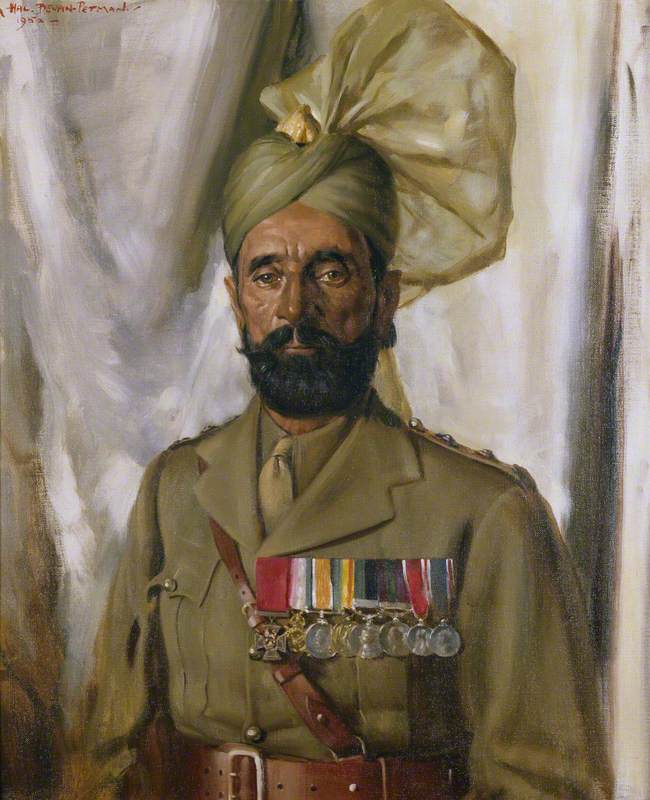
Khudadad Khan was the first Indian soldier to win the Victoria Cross after eligibility for the award was extended in 1911 to Indian officers and men of the Indian Army. This work by Henry Charles Bevan-Petman is in the National Army Museum.
Seascape with a Ship and a Jetty
(verso) c.1930–1935
Edward Morland Lewis (1903–1943) 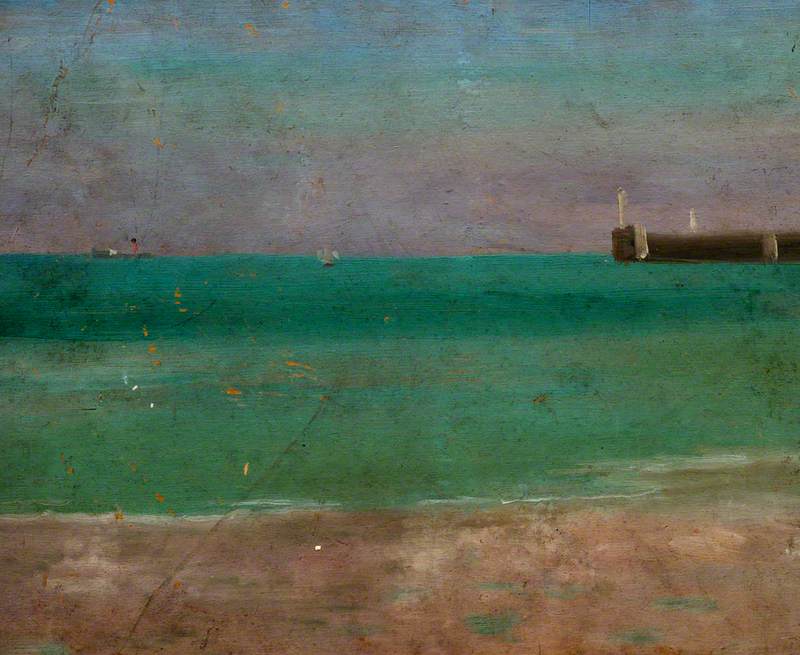
The artist Edward Morland Lewis was a radio operator in north Africa, where he died of malaria in 1943.
This painting by Henry Nelson O'Neil was painted in 1861, the same year that the US civil war started. The inclusion of a black man in the crowd is understood to indicate the artist's support for the anti-slavery movement.
Ellen Ternan, the daughter of the famous nineteenth-century actress Frances Jarman, was notoriously the mistress of Charles Dickens. The affair started when she was 18, and Dickens 45. This portrait of her is in the Williamson Art Gallery & Museum in Birkenhead.
This work by Yinka Shonibare found in the Royal Academy, examines race, class and the construction of cultural identity.
Alfred Munnings sketched Indian soldier Madat Ali during the First World War. This drawing is in the Munnings Art Museum. Munnings himself was deemed unfit to fight as he was blind in his right eye due to an accident.
This work from the collection of the Stirling Smith Art Gallery & Museum is by landscape painter Alexander Nasmyth. He was the art tutor of Mary Somerville, who became famous as a mathematician and astronomer. You can see her paintings on Art UK too. Somerville College, Oxford is named after her.
Get Back in Your Shell Like by Emma Hart is one of 68 works from the Government Art Collection that were displayed around Waltham Forest in 2019 as part of 'Ways of Seeing' for Waltham Forest Borough of Culture. This piece was on display in Leytonstone Library.
Winter's White Silence
1923–1924
Lucy Elizabeth Kemp-Welch (1869–1958) 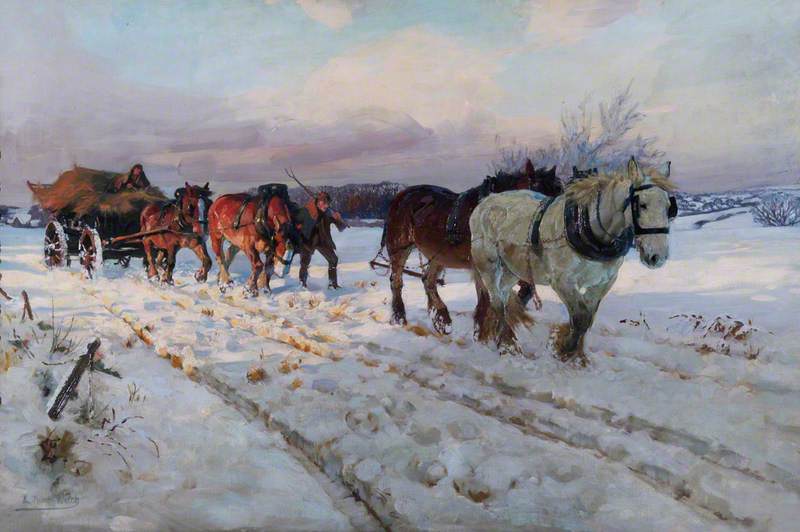
The artist Lucy Kemp-Welch was renowned for her images of horses, such as this example from Leamington Spa Art Gallery & Museum. She also provided the illustrations to the 1915 edition of Anna Sewell's Black Beauty.
This 1927 work, The Unexpected Meeting, is in the collection of the Royal Scottish Academy of Art and Architecture. The artist Ancell Stronach resigned from the Glasgow School of Art in 1939 to join the circus! His act featured birds and was billed as 'Ancell's 40 Painted Pigeons'...
In 1905 Scottish Colourist S. J. Peploe moved into a studio in Edinburgh's New Town – the studio had been created by Henry Raeburn over a century before! Peploe painted this still life in his new space, now in the collection of City Art Centre, part of Museums & Galleries Edinburgh.
Thomasine Blight (1793–1856), the White Witch of Helston
1856
William Jones Chapman (1808–after 1870) 
Tamson (Thomasine) Blight, known as the White Witch of Helston, had an occult rivalry with her own husband! This portrait of her is in the collection of the Royal Institution of Cornwall.
Lubaina Himid was the first black woman to win the Turner Prize, in 2017. She was affiliated with the BLK Art Group in the 1980s, which had its roots in Wolverhampton. This piece is in the collection of Wolverhampton Art Gallery.
Sophie Anderson was one of the first women artists whose work was collected by public galleries. In this work, bequeathed to the collection of Leicester Museum & Art Gallery in 1894, you can see Mount Vesuvius in the background.
Noted war artist Paul Nash completed this picture shortly before the outbreak of the First World War and it's now in the Jerwood Collection. Before he became a war artist he had been invalided home from the front after breaking his ribs falling into a trench.
Preston's Harris Museum has a painting by William Pritt of the Preston Guild in 1922, a major civic celebration which evolved from the gatherings renewing guild membership. The Preston Guild has taken place every 20 years since 1542 (not including 1942). It was first recorded in 1179 and the next one is in 2032!
In 2000, Irish artist Louis le Brocquy became one of a handful of British and Irish artists to sell a work for over £1 million during their lifetime. (The other three were Lucian Freud, Francis Bacon and David Hockney.) His Ageing Man Washing is in the collection of Rugby Art Gallery and Museum.
Shani Rhys James' works often feature gloves, the colour red and a self portrait. See if you can spot all of them in this painting from the collection of the National Library of Wales.
Martello Tower at Bulverhythe, East Sussex
c.1867
Sarah Louisa Kilpack (1839–1909) 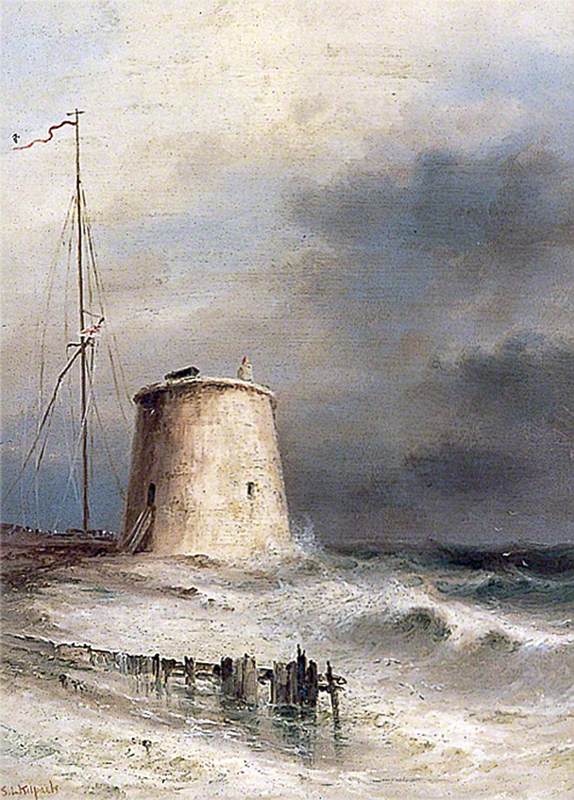
The artist Sarah Louisa Kilpack, known for her stormy scenes, originally trained as a pianist – she turned to art after the death of her father. This work is in the collection of Hastings Museum & Art Gallery.
Sculptor Kim Lim, who found inspiration in the art of ancient civilisations, was married to another sculptor – William Turnbull. Works by both of them feature in the Arts Council Collection.
The Hand Made Map of the World
2013
Tam Joseph 
Dominican-born artist Tam Joseph worked on The Beatles' animated film Yellow Submarine. This work in the Ben Uri Collection playfully reorders conventional geographies.
Until 1798, every year on Ascension Day, the doges of Venice took a massive floating palace called the Bucintoro to the Adriatic Sea to perform the 'Marriage of the Sea' ceremony, symbolically wedding Venice to the sea. The Bowes Musem has this magnificent Canaletto in their collection showing the 35-metre-long boat returning from the ceremony.
Prototype for 'Winged Figure'
1961–1962
Barbara Hepworth 
The Hepworth Wakefield has a full-scale prototype of Barbara Hepworth's Winged Figure that's on the side of the John Lewis store in London's Oxford Street.
A Scene in a Village Street with Mill-Hands Conversing
1919
Winifred Knights (1899–1947) 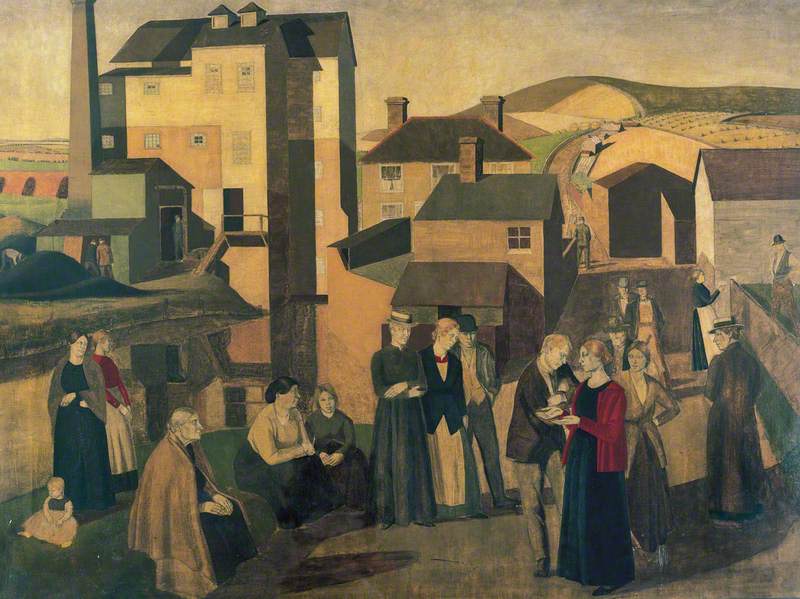
Winifred Knights was the first woman to win the prestigious Prix de Rome, in 1920. Her winning entry is in the UCL Art Museum.
Marie Anne De La Tour d'Auvergne, née Mancini, Duchesse de Bouillon
c.1672–1673
Benedetto Gennari the younger (1633–1715) 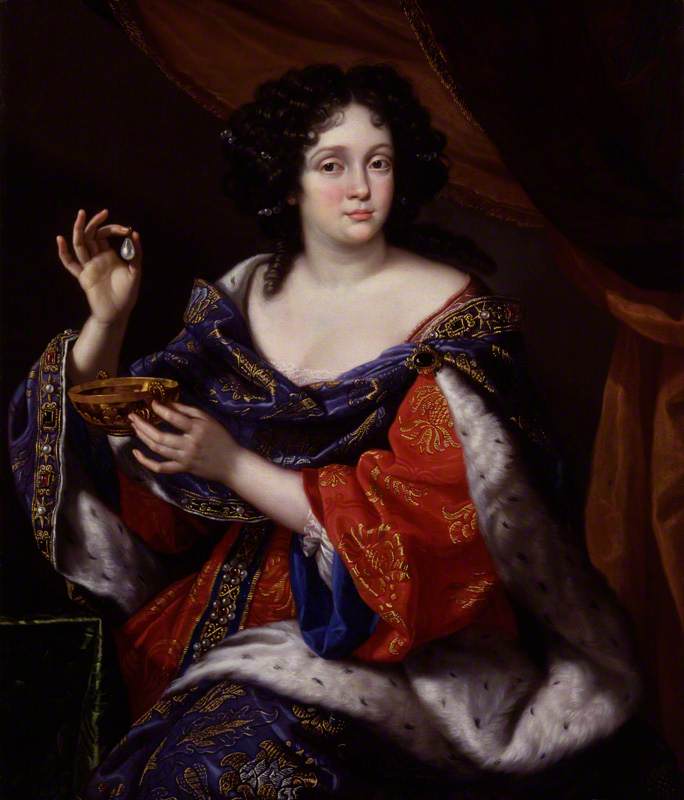
Well-to-do seventeenth-century ladies liked to be painted cosplaying as Cleopatra. This example from the National Portrait Gallery shows the Duchess de Bouillon about to dissolve a pearl in a cup of wine.
Before she undertook work as a war artist in the Second World War, in the late 1920s Laura Knight spent two years following a circus. One of her many paintings from this time is in the collection of Nottingham City Museums.
Music Room of the Royal Pavilion as a Hospital for Indian Soldiers
1915
C. H. H. Burleigh (1869–1956) 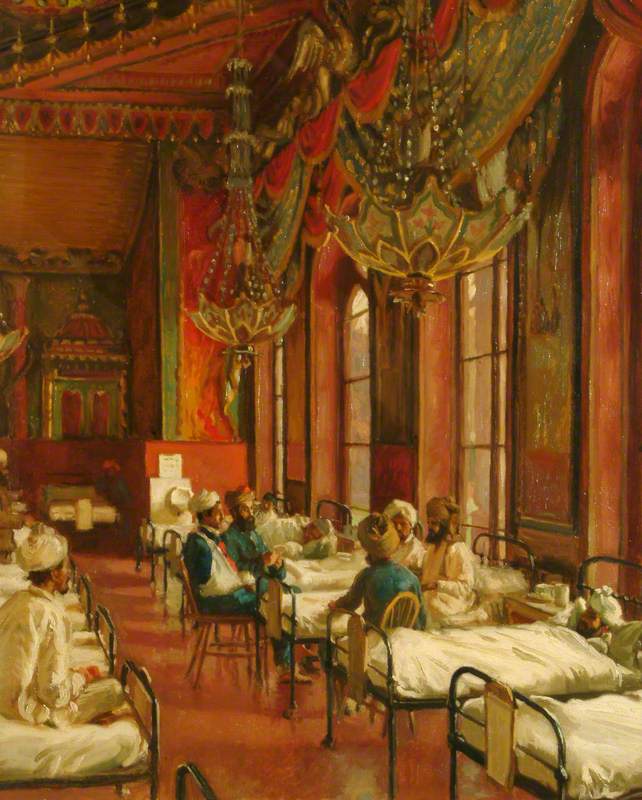
It took just six days to transform the Royal Pavilion in Brighton into a hospital for wounded Indian soldiers. This painting by C. H. H. Burleigh from the collection of Brighton and Hove Museums and Art Galleries shows it in action.
Chris Gollon's painting Einstein and the Jealous Monk in the collection of Kirklees Museums and Galleries in Huddersfield is inspired by the lyrics to Bob Dylan's Desolation Row (off his album Highway 61 Revisited).
Portrait of a Lady with a Parrot
1564
Antonis Mor (1512–1516–c.1576) 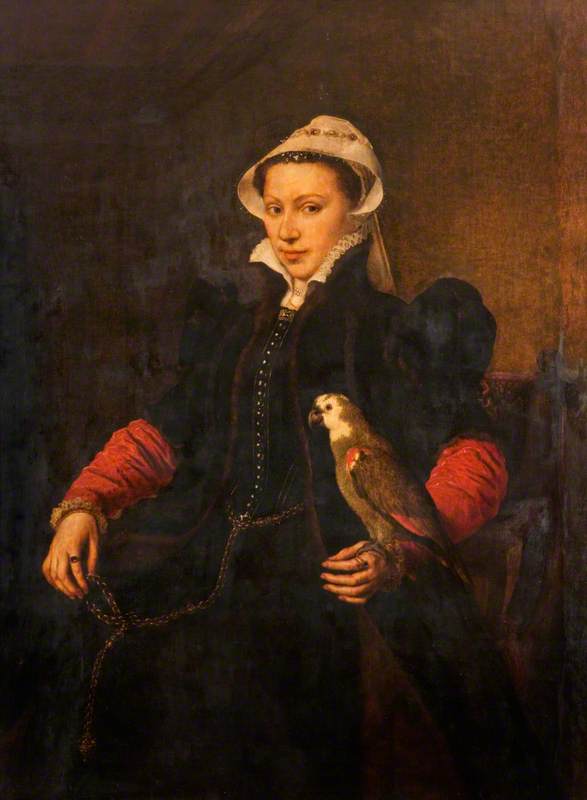
In sixteenth- and seventeenth-century Dutch paintings, a parrot represented prosperity, as seen in this example from the Hunterian in Glasgow.
The sunset in Frederic Leighton's Clytie was inspired by his visit to Donegal in Ireland. This version is in Leighton House Museum.
Blackburn-born Albert Neilson 'Monkey' Homby was the first person to captain international teams in both cricket and rugby. He also played football for Blackburn Rovers! (Unsurprisingly, his portrait is in Blackburn Museum and Art Gallery.)
Jacob Jordaens substantially revised this painting of the Holy Family in the collection of Southampton City Art Gallery, removing what's thought to have been a goldfinch from Jesus' hand. The discovery was made by examining X-rays taken by The National Gallery.
Man Proposes, God Disposes
1864
Edwin Henry Landseer (1802–1873) 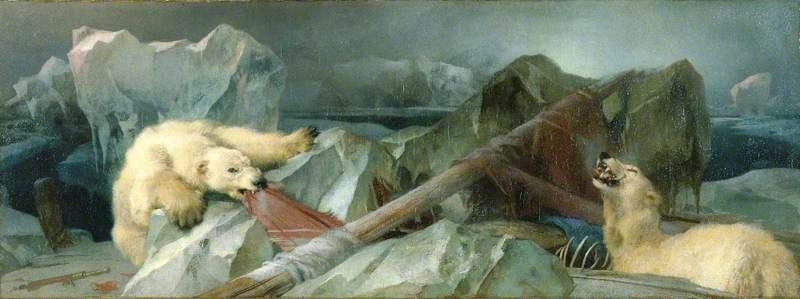
Edwin Landseer's Man Proposes, God Disposes is covered with a Union Jack when exams are taken in the university's picture gallery, as Royal Hollway students think they will fail if they sit near it. The painting commemorates the ill-fated 1845 mission of Sir John Franklin to find the North-West Passage.
Alexander Wilson (1766–1813), Poet and Ornithologist
J. Cairns 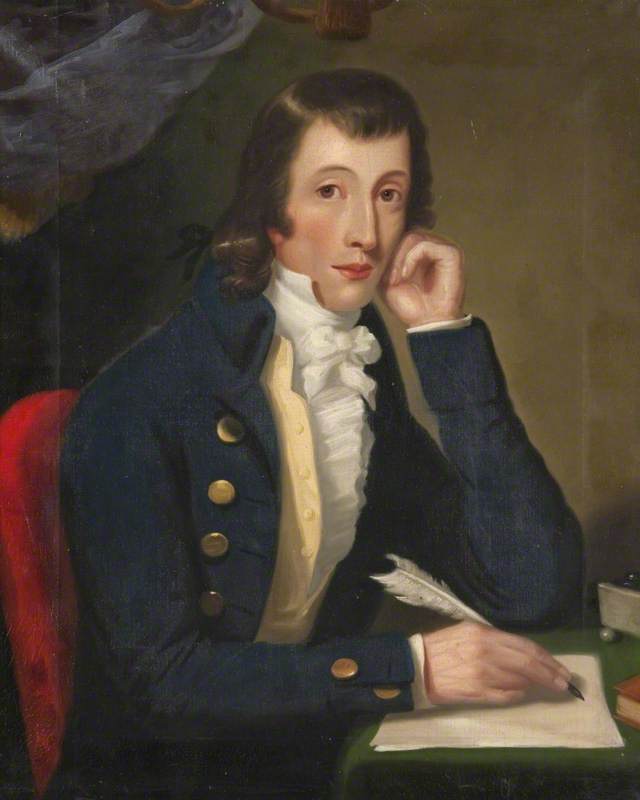
The 'father of American ornithology' was, in fact, a radical Scot from Paisley named Alexander Wilson, who was repeatedly incarcerated for his libellous poems and distributing radical propaganda. His portrait is in the collection of Paisley Museum and Art Galleries.
The artist Mary Stormont founded the Rye Art Gallery Trust in 1957 when she bequeathed her collection of around 100 pictures.
Brazilian-born former slave Louis Black lived in the Scottish town of Montrose for decades in the nineteenth century. His portrait by James Irvine is in the ANGUSalive collection.
Betws-y-Coed was the location of the first artists' colony in Britain. This view of the Meirioneth Moors in the collection of Bangor University is by George Harrison (one of the artists who joined the colony, not the guitarist of The Beatles).
The Houses of Parliament burnt down in 1834 because the Palace of Westminster's Clerk of Works decided to burn tally sticks in the indoor furnace instead of an open bonfire. This painting of the fire is in the Parliamentary Art Collection.
In the eighteenth century, some people wore silk patches to cover their battle scars, as seen in this portrait of Charles, 9th Lord Cathcart by Joshua Reynolds in the collection of Manchester Art Gallery.
The peacock feather in this work by Evelyn de Morgan in the De Morgan Collection is a symbol of immortality. Will you achieve immortality with your quiz results? Only time will tell...
Lydia Figes, Content Editor, and Andrew Shore, Head of Content at Art UK
Please note that the competition on the final quiz has now closed.
